






Ham-Alton
Alan Gilby (alan.gilby@leftlion.co.uk)
Editor-in-Chief Jared Wilson (jared.wilson@leftlion.co.uk)
Editor George White (george.white@leftlion.co.uk)
Assistant Editor Lizzy O’Riordan (lizzy.oriordan@leftlion.co.uk)


Head Designer Natalie Owen (natalie.owen@leftlion.co.uk)

Head of Video and Photography Curtis Powell (curtis.powell@leftlion.co.uk)

Partnerships Manager Adam Pickering (adam.pickering@leftlion. co.uk)
Web Developer Tom Errington (tom.errington@leftlion.co.uk)









Fashion Editor Addie Kenogbon (addie.kenogbon@leftlion. co.uk)



Stage Co-Editor Ian C. Douglas (ian@leftlion.co.uk)

Stage Co-Editor Dom Henry (dom.henry@leftlion.co.uk)
Screen Co-Editor Jamie Morris (jamie.morris@leftlion.co.uk)
Al Draper, Alison Gove-Humphries, Alison Harrison, Alison Hedley, Anamenti, Andrene Alejandro, Anne Jennings, Ant Haywood, Barbara Morgan, Ben Lester, Caroline Le Sueur, Catriona, Chloe Langley, Chris Jarvis, Chris Mead, Chris Underwood, Claire Foss, Claire Henson, Claire Warren, Clare Foyle, Colin, Cyra Golijani-Moghaddam, D Lawson, Dan Lyons, Dan Hemmings, Darren Harvey, David Knight, Dick Watson, Donna Rowe-Merriman, Eddie, Eden PR, Ellen O’Hara, Emma Lipinski, Erika Diaz Petersen, Felicity Whittle, Foxy Painter, Fred Glenister, Freddy Angell, Graye Wilde, Harry Sutcliffe, Hayley Howard, Heather Hodkinson, Heather Oliver, Helena Tyce, Ian Storey, Ian Yanson, In memory of Anna Novak (Bradford and Scoraig), In memory of Jenny Smith, James Place, James Wright, Janine Lees, Jayne Paul William & Pirate Jack, Jed Southgate, Jem Woolley, Jenni Harding, Joanna Furniss, John Haslam, John Hess, John Holmes, John Scruton, Jon Blyth, Jonathan Fenn, Jos Potts, Joshua Heathcote, Judy Gray, Julian Bower, Justyn Roberts, Kathryn Hewitt, Kathleen Dunham, Kay Gilby, Kiki Dee the Cat, Koprowskit, Lawrence Poole, Les Hayes, Lilian Greenwood, Livi & Jacob Nieri, Liz Knott, Lizzy and Margot, Lizzy Colyer, Louise Duffield, Marc Weaver, Mark Barratt, Mark Gasson, Matt Cliffe, Matt Turpin, Matthew Riches, Mighty Lightweights, MinorOak Coworking, Miri Debah, Moira Scothern, Monica White, Nick Donovan, Nick Waine, Nigel Cooke, Nigel Hudson, Nigel King, Nina Faresin, NottingJam Orchestra, Paul Boast, Paul Woodall, Pearl Quick, Pete Barker, Peter Coghill, Philip Miller, Rachel Ayrton, Rachel Hancorn, Rachel Morton, Raphael Achache, Redbrick Communications, Rich Fisher, Richard Barclay, Richard Goodwin, Rob Arthur, Roger Hughes, Ron Mure, Ross Balzaretti, Roy Manterfield, Russell Brown, Sam Hudson, Sam Nahirny, Sam Rose, Samantha Culshaw-Robinson, Sarah Manton, Sarah Moore, Sarah Scriver, Simon Evans, Siobhan, Spicer, Steve Lyon, Steve Riordan, Steve Silver, Steve Stickley Storyteller, Steve Wallace, Stewart Berry, Stuart Wilson, Sue Barsby, Sue Reader, Tim Foster Hair, Tom Justice, Tom Patterson, Tracey Newton, Will
Fancy seeing your name (or the name of your band, small business, loved one, pet etc) in this mag every month? It only costs a fiver and the money supports this magazine. Plus you get all kinds of other treats too.
Screen Co-Editor Oliver Parker (oliver.parker@leftlion.co.uk)
Music Co-Editor Gemma Cockrell (gemma.cockrell@leftlion.co.uk)
Music Co-Editor Amrit Virdi (amrit.virdi@leftlion.co.uk)


Food Co-Editor Daniela Loffreda (daniela.loffreda@leftlion. co.uk)
Food Co-Editor Julia Head (julia.head@leftlion.co.uk)
Photography Co-Editor Fabrice Gagos (fabrice.gagos@leftlion.co.uk)
Ian C Douglas
Photography Co-Editor Nathan Langman (nathan.langman@leftlion.co.uk)

Cover Jim Brown
Naternity Cover
Raphael Achache
Environment Editor

Eleanor Flowerday
Editorial Interns
Grace Maher
Cara Vallance
Writers
Dani Bacon
Sally Bashford-Squires
Bassey
Francesca Beaumont
Art Co-Editor George Dunbar (george.dunbar@leftlion.co.uk)

Cameron Black
Chronic Insanity
Olivia Hannant
Lilith Hudson
Adam Penford
Yasmin Turner
Nadia Whittome
Photographers
Gray Allen
James Armstrong
Sally Bashford-Squires
Harri Bentley
Creative by Wren
Robert Day
Perm Ghattaura
Morgan Howard
Mortan

Art Co-Editor Marta Tavares (marta.tavares@leftlion.co.uk)
Tim Nguyan
James Place
Chris Spencer
Jack Stoddart
Theatre Royal Topstar Portraits
Illustrators

AJ
Freelance writer Ian C Douglas is one of LeftLion’s two Stage Editors. Ian covers the Nottingham Playhouse, the Royal Concert Hall, and Nottingham’s vibrant and diverse fringe theatre scene. His role entails working with theatres to agree press tickets and then allocating those tickets to LeftLion’s team of dedicated reviewers. Theatres also contact Ian seeking interviews for visiting performers - anyone from panto dames to famed standup comedians. There are never enough reviewers to meet demand, so if you’re interested in joining our group of volunteers, please contact the LeftLion editorial team.
Read Ian’s write-up on Nottingham’s community theatre scene on page 21
Ciaran Burrows

Zarina Teli
Kate Wand
Evie Warren
Editorial Illustrations
Emily Catherine
Knock Star
Over 150 years since the Theatre Royal appointed their first stage door keeper, we catch up with the incumbent to learn more about his role

15
18
19
21
A Pageant Contestant in Notts
Boott Camp
We chat to Edward Boott, Artistic Director of Nonsuch Studios, ten years after he launched one of Nottingham’s most important institutions
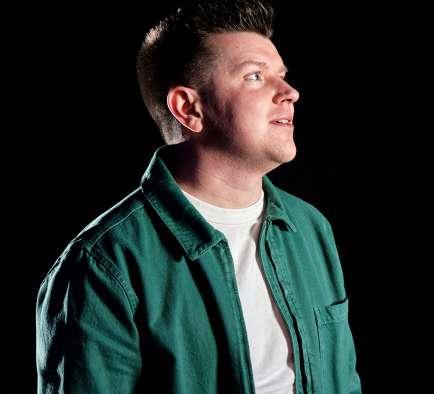
Diving In
33
Forget what you think you know about pageants - our Pageant Contestant in Notts is here to tell you they’re not all they seem
Breakin’ Down Barriers
Ever heard of Breakin’ Convention? If not, why not? It’s only been around for twenty years, and has changed the theatre industry as we know it
A Brave New World
Taking the magic of the stage far and wide, New Perspectives is the city’s touring theatre company that aims to share stories with all
Starting Drama
When it comes to community theatre, Nottingham punches above its weight with a wealth of opportunities
35
Talent on Tap
Ahead of its UK tour, we chat to Katie Redford about her debut stage play, Tapped, which landed her an Offie nomination
42
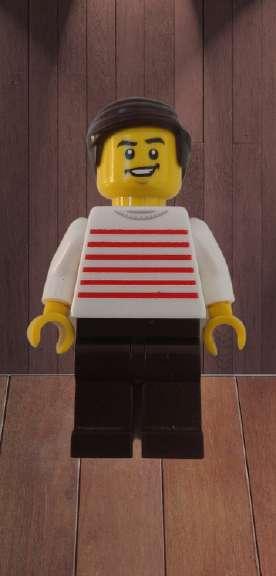
Hello there,
If you’re proper Notts, chances are you also properly love the theatre - after all, we have plenty of them dotted around the city.
One of my earliest memories is heading to the Nottingham Playhouse with my primary school, becoming entranced by the Sky Mirror outside, and becoming immersed in a new story, a whole new world, by the production I saw inside. Since then, I’ve loved heading to theatres to check out everything from horrors to musicals, dramas to ballet (yeah, I’m fancy), and have become fascinated with the wide range of impressive institutions we boast.
Whether it is the likes of the West Bridgford Dramatic Society bringing through the next generation of stars, or the Playhouse and Theatre Royal showcasing the best of the best in the industry, we really do have something for everyone - both on and off the stage. So, we thought it was high time we did an entire issue about it.
As well as chatting to some of the gifted lot taking over our stages over the coming weeks - including Nottingham’s own BBC New Talent Hotlister Katie Redford
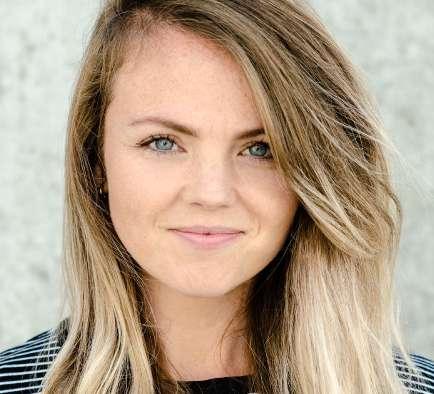
We speak to Kai Coombes, co-founder and Managing Director of TankSpace, an Ollerton-based underwater studio
Their First Rodeo
Midnight Rodeo, Nottingham’s genre-bending, boundary-pushing sextet, are debuting Dot To Dot Festival as a band this year
Leading the Way
We chat to Nikki Charlesworth, an Agent for Change at Nottingham Playhouse, about what it means to be a disability-led theatre
Out of Time: The Beatles in Nottingham They changed music forever. But would The Beatles have achieved it without Nottingham? Probably - but we played our part
(p23), who brings her show Tapped to the Playhouse - we’re shining a light on some of the unsung heroes of the theatre world, like stage door keeper Steve Harvey, who’s provided a warm Theatre Royal welcome to the likes of Seal (jealous) and Liza Minnelli. We also get to know boundary-pushing organisations like Nonsuch Studios (p20) and New Perspectives (p19), and hear about how the stage scene is becoming more inclusive (p41) and environmentally-friendly (p40). We hope you enjoy them all!
The last thing for me to say is a huge thanks to Lizzy O’Riordan, our wonderful Assistant Editor. Lizzy has decided to bid us adieu after twenty top issues to go travelling with her dearly beloved. I think I speak on behalf of the entire team when I say LeftLion won’t be the same without her warm writing and unwavering desire to squeeze the topic of books into every conceivable article. Best of luck for the future, Lizzo!
Right, that’s it. Catch you on the next one.
Big ups,
George White EditorTony Joynes
Muffin keen to read LeftLion @TonyJoynes3

Tag us on Instagram @leftlionmagazine to feature in a future issue
LeftLion Ltd is a carbon neutral company, having reduced our direct emissions by 99% since 2018. We offset the rest via direct air capture from Climeworks. LeftLion Magazine is fully recyclable and compostable, made from recycled or FSC® certified (C015932) sources, and printed using renewable energy. The emissions of this paper are offset via the World Land Trust.


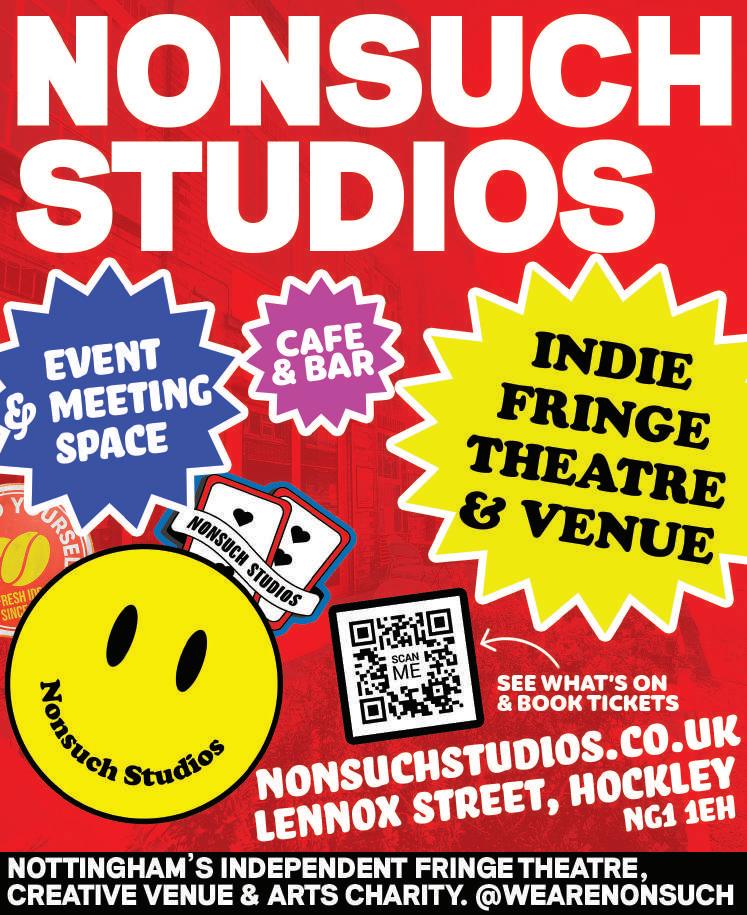
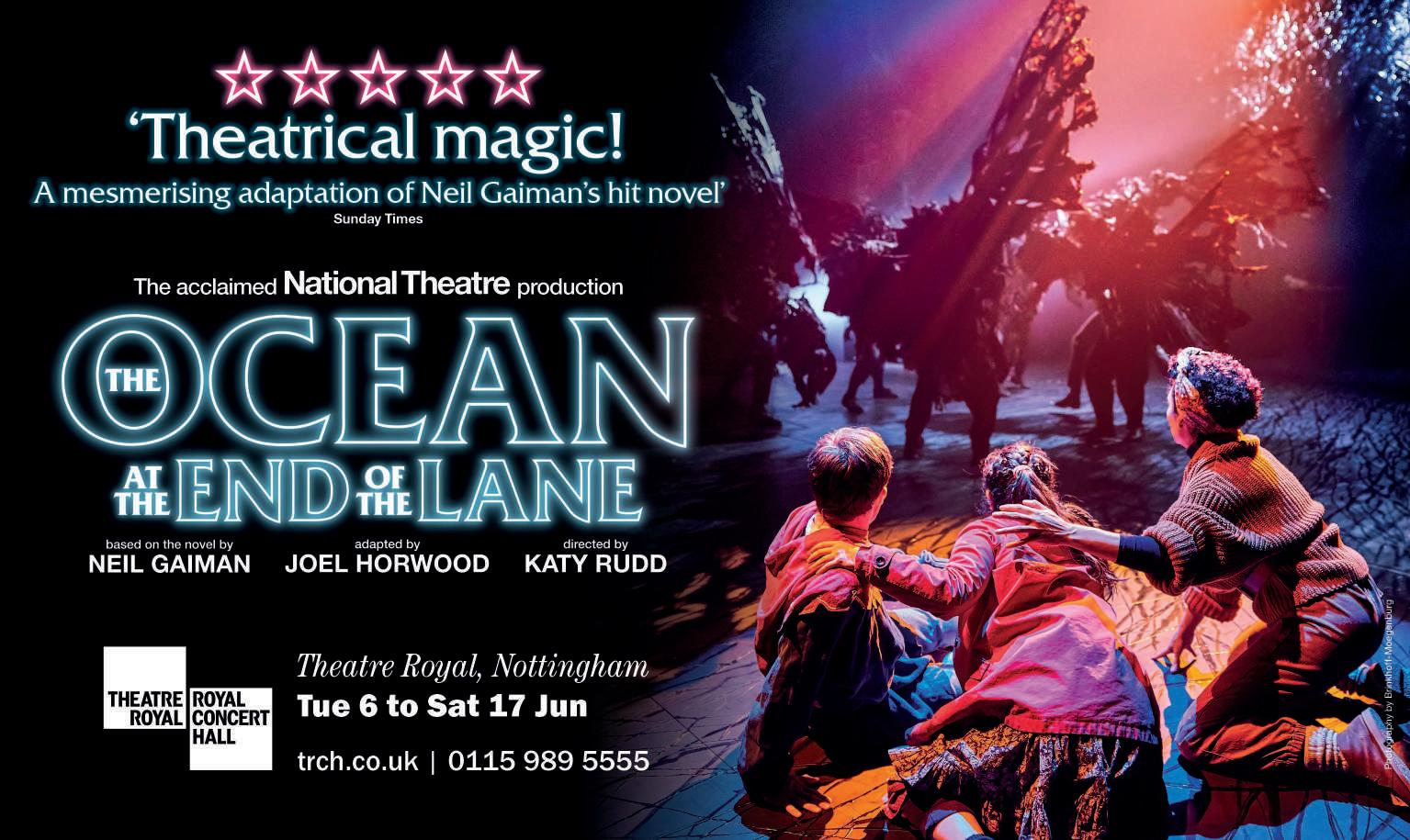
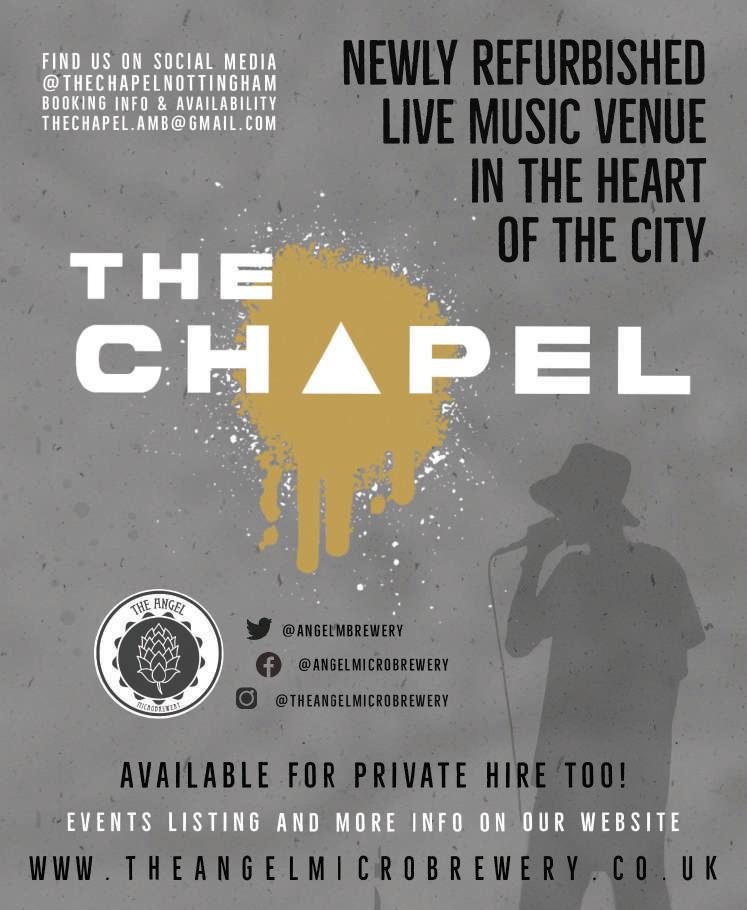
Egg-celent Job
illustrations: Kate Wand
It might have been Easter last month, but the only eggs worth caring about were the ones that my old pal Mrs Peregrine popped out atop Nottingham Trent University’s Newton Building. As great news as it is, though, I don’t reckon I’ll be stopping by for the baby shower. Their humble abode is far too high for me. I prefer my homes under the ground, rather than hundreds of feet above it, thanks.
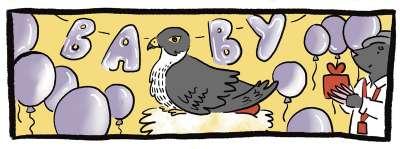
Sculpting Success
Have you ever wanted to feel like a giant? If so, Wollaton Hall have you covered with their Miniature Masterpieces exhibition. From now until October, the former home of that ‘Bat Man’ chap will play host to twenty microscopic works, all of which aim to highlight environmental issues including biodiversity loss. Sound good? Why not stop by and (just about) see them for yourself?

Bones Under the Hammer


As if the prospect of moving to Staffordshire wasn’t horrifying enough, imagine setting up shop in a former mortuary there. Well, for the bargain price of £55,000, you could do exactly that. That’s right, John Pye Auctions have put a morgue in Leek under the hammer, and have boldly described the old building as “quirky”. If their ghoul is to spark a spirited bidding war, I fear they may hit a dead end. Sorry.
“Aah, Bo Peep was a G.”

“You're not devious, you’re just a twit.”

Man 1: “Mate, what's one plus one?”
Man 2: “Two.”
Man 1: “Nah, eleven.” Laughs uproariously.

"Fighting's not about size. He could just bite his bollocks off from down there."
Notts Spot
“Dean got run over again?”
“I really hope they have Doom Bar in Magaluf.”
“I thought rivers couldn’t run north because north is uphill.”
“I was so battered I thought I saw a duck fly.”
“God, I hate art.”
I love the humongous tree in Wollaton Park, hidden away by the Beeston Lodge entrance. Not many people seem to know about it, probably as it’s slightly hidden off the main path. The boughs are so hefty they rest on the ground. I like to imagine the Elizabethans/Batman climbing it in days gone by.
Kid: Runs towards the Left Lion Mum: “No, don't go near that. It's got wee on it.”
Little girl on the bus, no older than seven, in an exasperated voice to her younger brother: “You’ve been a nightmare today.”
“We're supposed to be at a funeral, not talking about breast milk.”
Song I’m directing The Sound of Music this summer, so at the moment Julie Andrews is stuck on repeat. But aside from that, the songs of Blur, Pulp, and Oasis take me back to being a teenager in nineties Nottingham; endless summer nights of outdoor parties and sweatily jumping around at Rock City.
Holiday Destination


The Greek islands are my favourite place, particularly the secluded ones that have no airport and you must reach by boat. There’s a sense of a simpler way of life, stretching back centuries. Clear turquoise Aegean and Ionian seas; traditional outdoor tavernas; ancient harbours and small fishing boats; and remote mountaintop monasteries.
Book
The Song of Achilles by Madeline Miller is a modern classic. She takes an ancient story and breathes urgency and desire into it. I had coffee with her when I was in New York and she’s an unassuming, academic person - not what you imagine from the immense raw passion in her writing. It just goes to show about books and covers.

To celebrate our stage issue, we’ve tasked Adam Penford, Artistic Director at Nottingham Playhouse, with choosing a few of his favourite things…
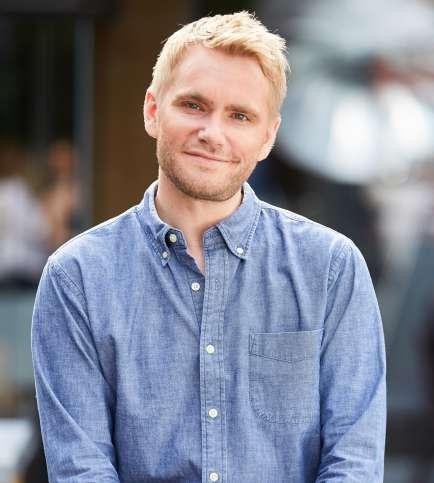
Film I’ve watched Jaws many times, as the storytelling is so sublime. The way Spielberg threads the dramatic action of the impending shark attacks with the political backdrop of a community trying to protect their livelihoods is like Shakespeare. And Robert Shaw’s speech about the sinking of the US Indianapolis is acting gold.

Meal
The best meal I ever had was in a gloomy, low-ceilinged room, down a cobbled alleyway in Paris. We just happened upon it, saw the reasonable set-price displayed in the window, and took a chance. There was no menu, they just kept bringing course after course of delicious, freshlycooked rustic food. I tried to find it again years later, but it had vanished.
Our mole on the ground isn’t afraid to get his hands dirty to bring you the Notts stories you might have missed...photo: Creative by Wren



Talent shows become much more disturbing when you realise it's just rich people dangling money in front of poorer people, telling them to dance for their entertainment.
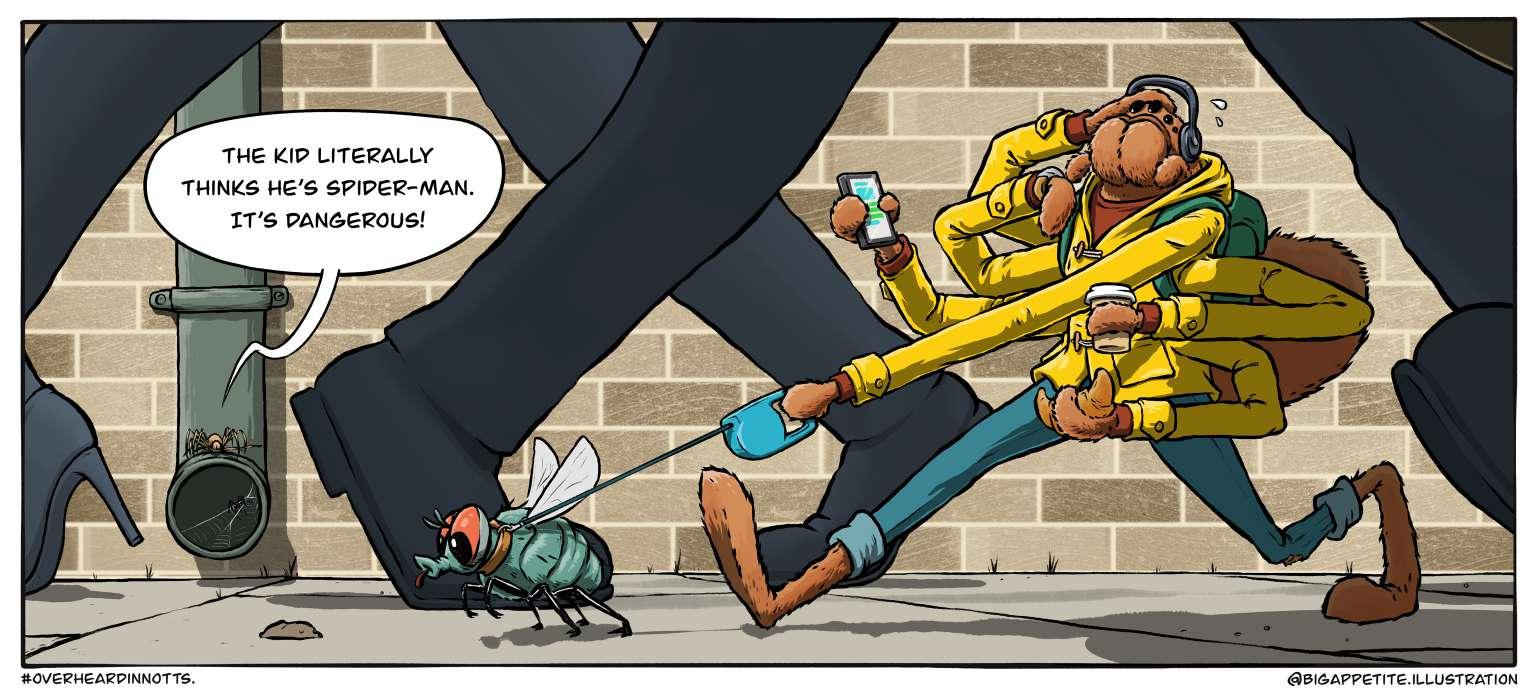

Spotted: Long Eaton
A stunning bird in Sandiacre???? Not aving that lol
Spotted in Carlton
Hi I have just spotted an otter running down cavendish road I had to swerve to miss it. It may be from under the decking please can you post to advise others don’t want a ROC. (Road otter collision)
Spotted: Long Eaton
Is there a world record attempt in progress? We must be close to a record for the most roadworks within a square mile by now
Spotted Ilkeston town
Drove past Ebenezer Methodist Church (opposite the entrance to Shipley View) earlier and couldn’t work out what the actual f#*@ the sculpture/model/thing is at the front. Is it a donkey? Something with 3 heads and really bright yellow hair?
Spotted: Long Eaton
Does anyone have any ferrets in long eaton at all, i want to try to socialise mine with other ferrets so he gets some other type of stimulation other than me
Spotted Ilkeston town
The black plastic stalk, mounted at the side of your car's steering column, is called an "indicator"it's purpose is to indicate to other road users, and pedestrians, which direction you intend to go. Try using it, it's free and doesn't hurt at all!
Arnold Community Group UK
Okay but why did you have a shopping basket at home?
Retford Information Page



I'm considering quitting the business and selling the house so I can dedicate myself full-time to the emails and texts from my children's schools.
Arnold Community Group UK Arnold.is getting worse!!
Hucknall Community Group
Make your mind up its either horse or dog.
Carlton Hill Community
Has anyone lost this? Flew over my garden on Monday and has now flown back and landed today. No child in it!
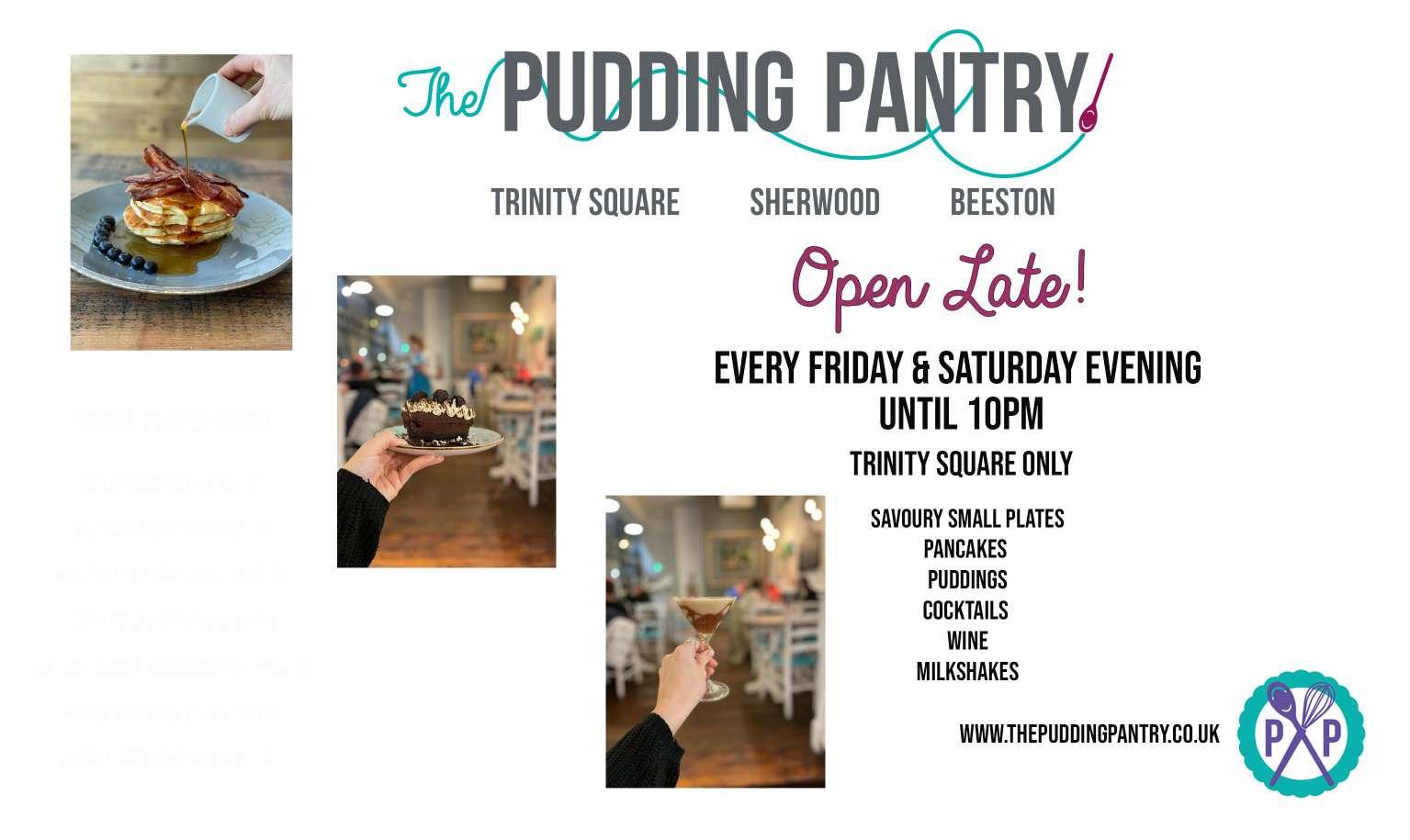
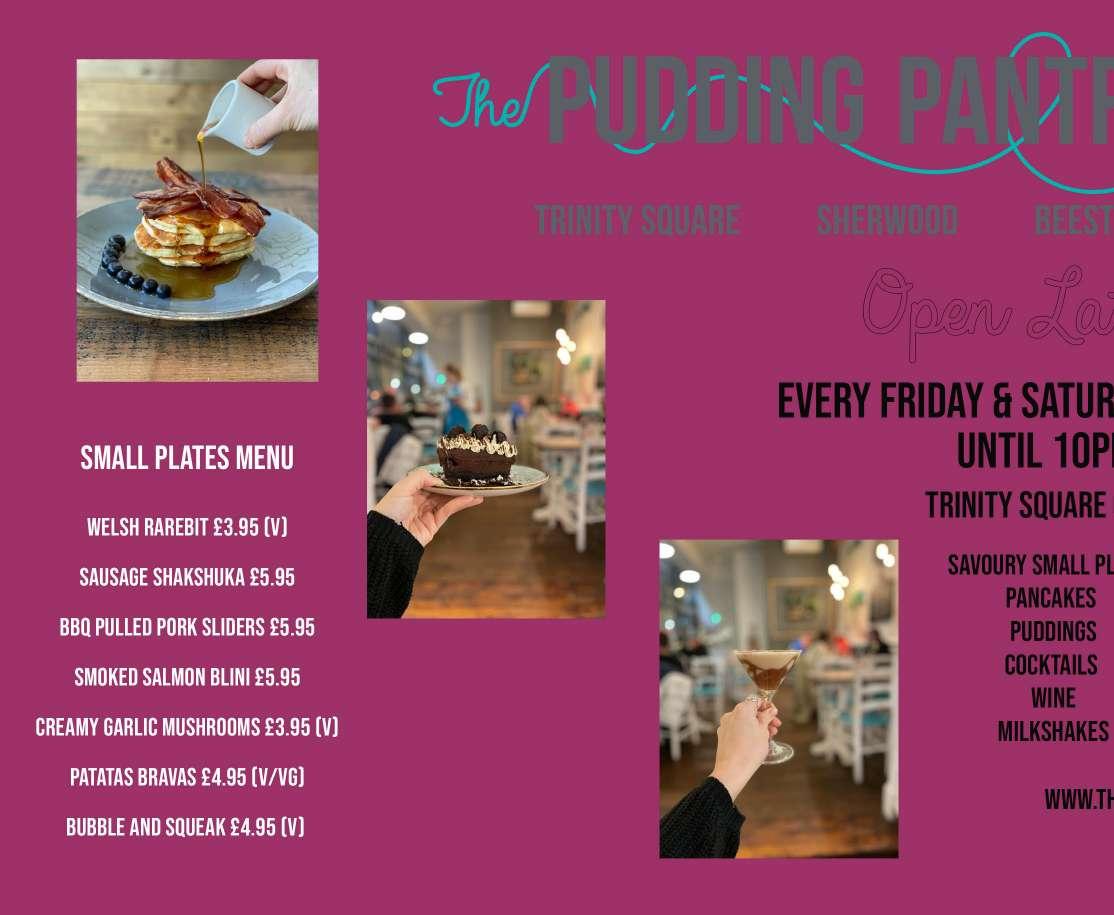
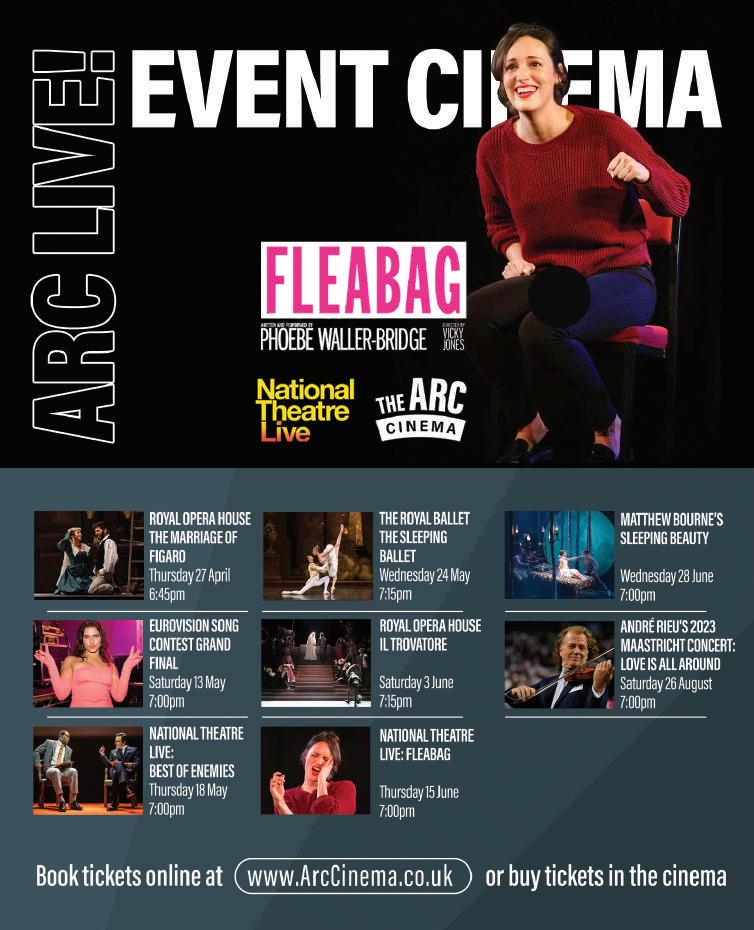

There are many reasons to be excited for May. After what felt like an endless winter, the sun is finally starting to come out, and picnic season has begun. What makes it even better is that we’re getting more time to enjoy it: This month we have three bank holidays, which, for most people (although sadly not everyone), means three four-day working weeks.
Now, imagine what you would do if you had an extra day off every week of the year, without losing any pay. Most of us would probably choose to spend more time with family and friends. Many people would appreciate the ability to enjoy more art and culture - you could finally see the play you read about in LeftLion and have been meaning to watch. Maybe you’d hop on a train and explore the country. Perhaps you’d learn a language, set up a small business on the side, or even write a novel? Or simply catch up on sleep. The possibilities are endless.
Is a four-day workweek achievable? A growing number of people believe it is. In February, results were published of the world’s largest four-day week trial. Over six months, 61 UK companies employing 2,900 workers volunteered to give their staff more time off for the same pay. The pilot turned out to be a resounding success. Revenue increased rather than fell, while staff wellbeing improved dramatically. Employees reported better physical and mental health, and significantly less stress and burnout. Dads spent more time looking after their kids, helping reduce the gender gap in childcare responsibilities. Of the employers who took part - which ranged from large financial companies to a fish and chip shop - 92% decided to continue with the policy after the trial.
These positive results confirm the findings of similar experiments in countries including Iceland and the US. A four-day or 32-hour week is being embraced by a growing number of businesses around the world. It seems like an idea whose time has come.
At first, it may sound too good to be true. But the same was once said about the weekend. Throughout the nineteenth century, most people in Britain and other industrialised countries worked 60 hours or more every week. The Early Closing Association campaigned for free Saturday afternoons, while many factory workers adopted the practice of Saint Mondays - taking Mondays off - despite opposition from their bosses. Trade unions fought tooth-and-nail for a formalised reduction in working hours, often backed by religious groups. It was only in the 1930s that the two-day weekend became the norm.
As automation increased productivity and reduced the demand for human labour, working hours were falling. In 1930, the economist John Maynard Keynes speculated that his grandchildren would be working 15-hour weeks. In the 1960s and ‘70s, many people predicted that technological progress would soon create a “leisure society”.
However, since then, this trend has stalled. Further improvements in productivity have largely translated into higher profits for big business, instead of more free time for workers. When new laboursaving technologies are developed, people worry about losing their jobs, rather than expecting the benefits to spread to everyone. Burnout is on the rise, and overwork is putting a strain on our health and relationships. No wonder more and more workers are demanding better.

A four-day week isn’t something that will happen overnight. In some sectors, working time can be cut down more easily than in others. While plenty of office jobs could be done more efficiently, by less-tired staff in four days, in some workplaces it would require a more creative approach, such as automating or cutting out non-essential tasks. In others, including many public services, it would be necessary to create more jobs. In turn, it could improve staff retention, reduce the number of sick days, and lower the risk of dangerous mistakes. I know I’d rather be operated on by a well-rested doctor than an exhausted one.
A four-day week also doesn’t have to look the same for everyone: In workplaces that have to stay open all week, team members can work different days, or do shorter days instead. Any plans to bring down working hours need to be developed with the workers, who themselves know best how their time could be used most effectively.
Despite any challenges it may pose, the case for a four-day week is too strong to be dismissed. It’s time to take inspiration from those who won us the weekend, and campaign for our right to have a break. We all deserve to have time to care for one another, to learn, play, create, and explore. After all, there’s so much more to life than work, and we’d all be better off in a society that recognises this.
nadiawhittome.org
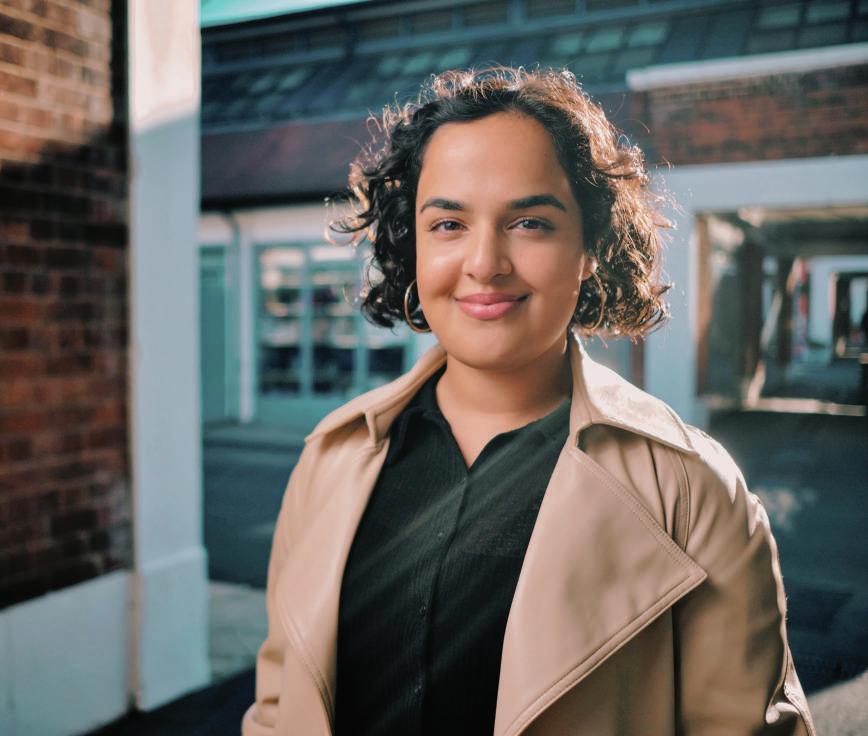
Despite any challenges it may pose, the case for a four-day week is too strong to be dismissed. It’s time to take inspiration from those who won us the weekend, and campaign for our right to have a breakwords: Nadia Whittome photo: Fabrice Gagos
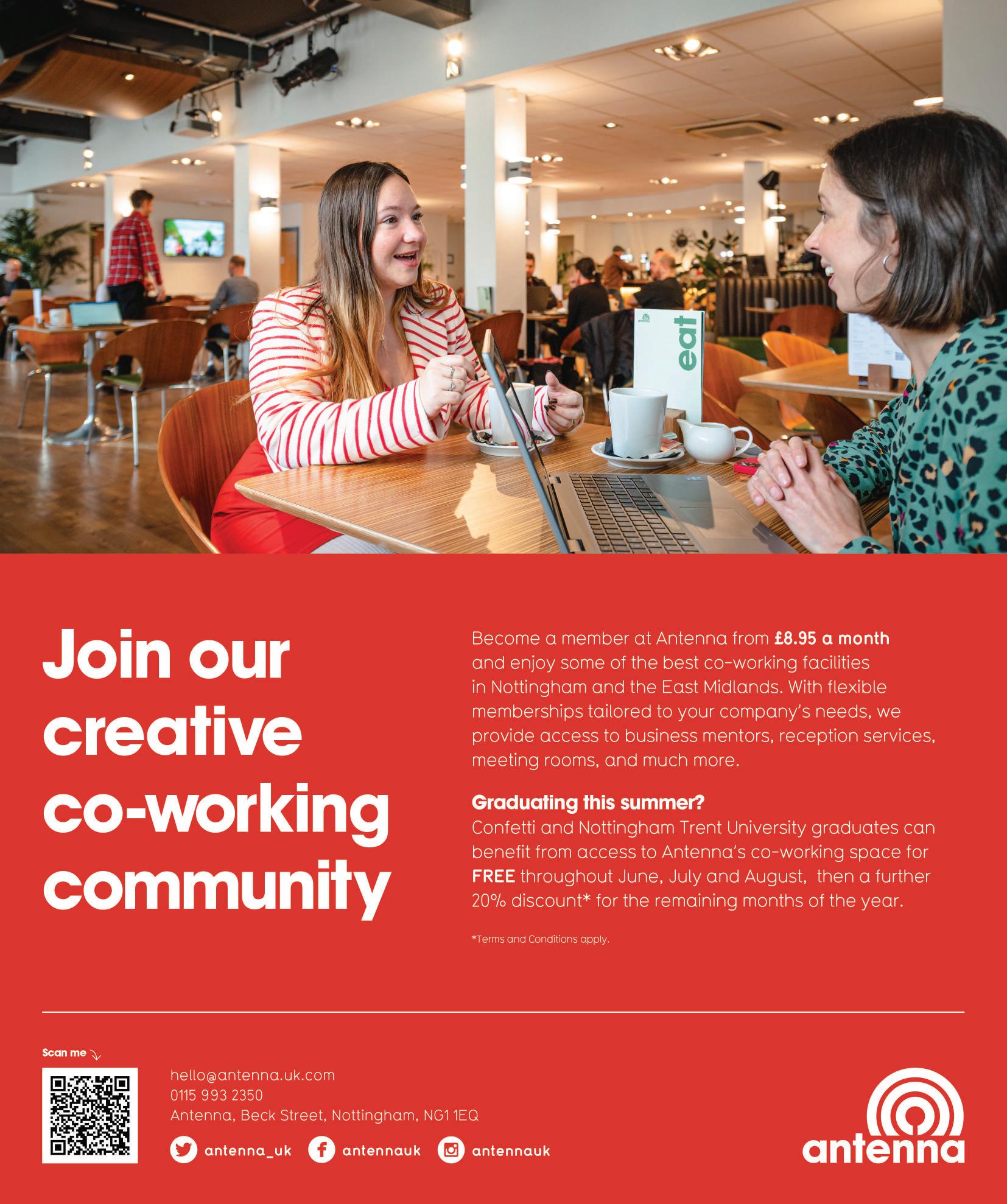
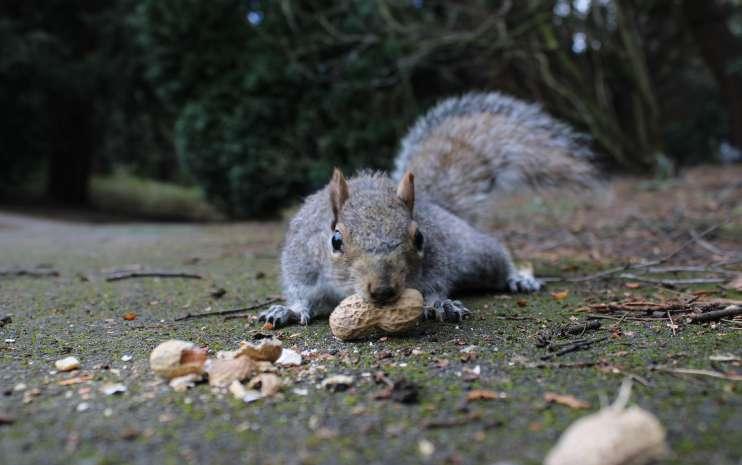
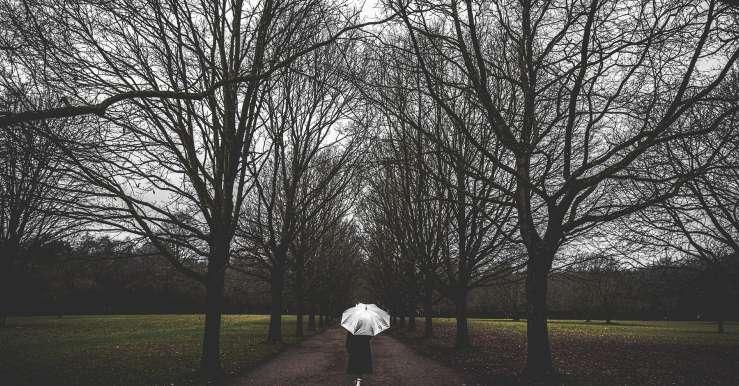
Want to have your work featured? Send your high-res photos from around the city, including your full name and best web link, to photography@leftlion.co.uk





I grew up as a relatively shy, uncompetitive child from County Durham - before moving to Nottingham for university. In many ways, I was the last person you would guess would go on to compete in pageants. Nonetheless, I fell into them because, for me, it represented something more meaningful than a sparkly crown or a beautiful gown. It became my own personal challenge and experiment to show myself that I could make a difference in my community, become successful by being myself, and not have to change who I was to win a pageant crown.
So, in May 2018 - at age fifteen - I came across the Miss Teen Great Britain website and applied with a picture of me and my dog. I had my hair in a messy bun and some pink pyjamas on to serve as my first test of their ‘empowerment’ claims. To my surprise, I got through to the grand finale that year, and I competed again in 2019 before winning the title in 2021. It was the catalyst that sparked the biggest transformation in my life - not just the year I won, but in those years leading up to holding the national crown.
A typical day of any pageant girl is certainly not limited to one thing. It could consist of photoshoots, appearances, attending or hosting charity events, a lot of travelling, campaign planning, dress designing, walk coaching, interview practice and posting on social media, to name but only a few. Pageants today are not solely judged on appearance, but rather on how you are able to empower others, your own self-presentation, and your work with charities - all delivered in a job-style interview.
At a competition, contestants will participate in an interview to show off this work, and then go through onstage rounds, fashionwear, evening wear and other optional side awards (with a fitness, talent or spokesmodel focus, depending on the competition). It most certainly involves a lot of hard work and organisation: often, contestants are preparing for nearly a year before they go on stage.
During my year as Miss Teen Great Britain, I got the opportunity to travel to one of America's top independent summer camps for ten weeks, working with the younger generation and using my title to be a role model. I was responsible for groups of young girls, empowering them and almost raising them as my own for a whole summer. Owning a crown is a tool for reaching goals and boosting your CV - a main reason I have been given academic and social opportunities throughout my teenage years.
I’ve also been given opportunities such as walking in the 2023 National Prom Show, hosting my own mental health podcast/livestream interview series, and illustrating three children’s books around mental health, some of which are held in libraries and sold on Amazon. My mental health campaign was born from struggling with OCD and emetophobia when I was a younger teen, and it is so special to me that through this platform I can help others going through the same thing.
This work is at the epicentre of what it means to be a pageant girl; the crown is a symbol of your impact in the community and a token to give you the opportunity to be seen by charitable organisations and the wider public. In terms of my future pageant plans, I currently hold the title of International Junior Miss Nottingham, and if I win the national title of International Junior Miss UK, I will then get to compete for the international title in Florida amongst some incredibly successful women. Winning International Junior Miss and competing on a global stage has always been a huge dream of mine, as this title is called the ‘crown of opportunities’ - which I know to be true from my years in pageantry.

However, the field is often written in rose-tinted glasses by pageant girls. I, myself, have come to understand that with anything worth having, it is likely going to contain some sacrifice or struggle. Just like sports, there’s always a person rooting against you, there will be someone with the ‘better’ dress or have a ‘better’ coach - and that can be a difficult pill to swallow. But in a world that is inherently competitive, I've come to learn that it's all about how you brand yourself regardless of other successes, and it’s about being able to appreciate, admire and empower other women for their achievements and amazing qualities without having to question or compare them to my own.
Pageants are not for everyone, pageants do not empower everyone, and not everyone will win a pageant. So, although I am such an advocate for the positive impacts of pageants, I won’t deny sometimes it may feel tough and it isn’t a hobby that is going to suit everyone. Only one girl may win, but it’s important to focus on what else is to gain from competing rather than solely the crown.
The media sometimes seems determined to portray pageants as a killer of self-esteem and some people have branded it as a form of evil but in a pretty bow. But I believe that, in a world defined by celebrating men’s achievements and hailing their judgements, the need for pageants in society to promote women’s voices without having to lose their femininity is powerful and necessary. Possessing stereotypical feminine qualities is often semantically associated with weakness or powerlessness, often meaning women must strip these qualities to be taken seriously or to be successful.
Pageants change this narrative; being a woman and enjoying ‘feminine’ things is a powerful tool and is not a deficit. And, as a teenage girl and a pageant lover, it became an outlet for me to express my interests without being branded as ‘cringe’. There is no winning in society for teenage girls, but the community of pageantry forces you to yell your achievements from the rooftops, succeed without being ‘too much’, and exist without being overshadowed.
illustration: Emmy Lupin
I like to come into work wondering, ‘What's going to happen today?’ Every day is completely different and that's what keeps the job alive for mewords: Gemma Cockrell photo: Fabrice Gagos
There’s been a stage door keeper on duty at Nottingham’s Theatre Royal every day since 25 September 1865, providing a warm, friendly welcome to the venue’s staff, members of the public, visiting companies, orchestras, and celebrities alike. Over 150 years since the role first originated, we catch up with the incumbent, Steve Harvey, to learn more about the comings and goings of one of the UK's most successful touring venues…

I arrived outside the Theatre Royal at ten o’clock on a pleasant Wednesday morning, heading straight for the stage door, which is located next to the Royal Centre tram stop on Goldsmith Street. Steve Harvey was the first face I saw as he buzzed the door open for me, an experience which is now shared between myself and pretty much every other person who has entered the Theatre Royal through this door for the past two decades.
Prior to my arrival, American singer-songwriter Ryan Adams had already popped into the building for a fit-up ahead of his show at the Royal Concert Hall in the evening, and the cast of Frozen: The Musical were en route for their matinee performance in the theatre that afternoon. With the stage door acting as the hub of the complex, Steve opens up the venue in the morning when the theatre’s staff begin to arrive for work before meeting and greeting the cast and crew members who are performing that day.
Before landing the role of stage door keeper, Steve worked in various hotels in Nottingham, including the Royal Hotel (now known as the Crowne Plaza), which is situated just across the road from his current spot. A friend of his who worked in the box office of the theatre at the time informed him that the job was available. “I was collared as I was walking past. I came in for an interview and I got the job. Here we are twenty years later!”
During this time, Steve has encountered people from all walks of life, from theatre staff and members of the public to visiting companies, roadies, celebrities, and orchestras. “The people I meet are always lovely,” he says. “We've had names like One Direction, Olly Murs, Little Mix… a lot of [pop acts] come here when they first start out, before they go on to perform at the [Motorpoint] Arena. Sometimes, if they’re still together later, they come back down to our venue.”
He admits that one celebrity who made him feel a bit starstruck was American actress and singer Liza Minnelli, who walked through the stage door when she performed at the Royal Concert Hall in 2008. But he makes sure to remind himself that “when celebrities walk through the door, they're all just people coming in to do a job, however famous they are. They're usually a little bit more shy and timid in this area than when they’re performing on stage.”
He may be too kind-hearted to say anything mean-spirited about anyone in particular, but he admits that some celebrities are not the way you’d expect them to be when you see them on TV. “I’m not naming any names! But I never, ever judge anybody, because sometimes you hear rumours about people beforehand and then they turn out to be absolutely lovely. Then, sometimes, people come in here and you think, ‘Oh, okay.’ Some people just aren’t in the best mood early in the morning!”
Someone who failed to disappoint Steve was Grammy Award-winning singer Seal, who provided him with a standout moment that he will never forget. “He’d just finished his concert and he was waiting for his lift to pick him up. One of my colleagues told him she really loved one of his songs – I can't remember which one it was now, but it was quite slow and emotional. He literally stood there and sang the whole song to us – we were tearing up by the end. What a beautiful voice! You can't make that up, can you?”
Panto season is a regular highlight of the year for Steve, because “the cast are here for a lot longer and everyone gets to know each other a little bit better, so you sort of become a little family.” But it’s the unpredictable and ever-changing nature of the job that keeps his spark of passion alight. “No two days are the same,” he says. “I like to come into work wondering, ‘What's going to happen today?’ Every day is completely different and that's what keeps the job alive for me.”
Another duty that Steve is responsible for within his role as stage door keeper is managing the venue’s overflowing lost property cupboard, which appears to be where all of Nottingham’s missing scarves, umbrellas, and water bottles are hiding away. “We’ve even found some hearing aids and false teeth before!” Steve says with a laugh. “I always like it when we can track them down and get them back to their owners.”
This degree of care captures what makes Steve so good at his role: he is a people person, oozing with positivity around anyone he meets at the stage door. “I’d like to think that everybody that comes through the door always gets a nice, friendly meet and greet. Quite often, I’m the one welcoming them to the city, because a lot of them probably haven’t been here before if they're part of a touring show,” he says. “I like everybody to come into the theatre and be happy.”
trch.co.uk
When celebrities walk through the door, they're all just people coming in to do a job, however famous they are. They're usually a little bit more shy and timid in this area than when they’re performing on stage
Ever heard of Breakin’ Convention? If not, why not? It’s only been around for twenty years, and has changed the theatre industry as we know it. This May, the Convention is returning to the Royal Concert Hall, bringing the finest acts in breaking, popping, locking, and krumping to the historic venue - and giving you a chance to see what all the fuss is about first-hand. Ahead of the exciting event, we chat to Jonzi-D, hip hop legend and the brains behind it all, about street dance, the stage scene, and everything in between…
For those who don’t know, what is Breakin’ Convention?
Breakin’ Convention is an international festival of hip hop dance theatre. It’s called that for two reasons. Firstly, because there will be breaking and it’ll be a convention… But secondly, we are breaking the convention of what people normally see in arts and theatre spaces. We’ve been going for twenty years, and we work with artists from all over the world of hip hop, who have a variety of styles. So we’re not just about breaking, but also popping, locking, krump dancing, Afrobeat. It covers all forms of street dance, and pushes away from what you may call institutional dance forms, like ballet and contemporary dance.
How important is it to offer events that people might not usually associate with theatre?
What we think is important is that the arts reflect all of society. Middle-class white people largely tend to go to the theatre. I think that’s partly because of the prices, but also a lot to do with the culture. So what we’re doing is presenting ‘diverse’ work within these spaces. That said, I wouldn’t call hip hop diverseit’s the most popular dance form in the world at the moment. You’ll get more people across the globe who are interested in practising hip hop dance than classical ballet, for example. I guess a better way to put it is that we’re democratising the theatre space by bringing through art forms that come from and celebrate the working class community, who may usually struggle to both break into this scene and see themselves represented on stage.
What can audiences expect when they stop by Breakin’ Convention?
It’ll be a beautifully immersive environment before you even take your seat. There will be DJs playing music in the mezzanine, graffiti art all around the place. There’ll be a lot of great work from the local communities - and that’s particularly true in Nottingham, where there’s a fantastic hip hop history and some of the best rappers in the country. It’s a real pleasure for the Nottingham community to come out and perform, not in the context of a ‘battle’ - but in the context of a showcase. Often, hip hop events are usually battle-focused, whether it’s popping battles or rap battles. Yet this is all about everybody working together to share their work and their take on hip hop dance culture.
How do you choose the Notts acts that will get to perform?
We work closely with Gareth from Unite the Scene, who is based in Nottingham and is our local Breakin’ Convention rep. What he does is gather lots of artists to present their work, and we collaborate closely to choose who we'll invite onto the stage.
As well as the local representation, this has a very international focus - boasting acts from The Netherlands and South Korea. Why does hip hop have such a global appeal?
It’s a very accessible culture. It’s not elitist in any way. You don’t have to enter the scene at three years old with classes paid for by mummy and daddy. There’s a fundamental culture of ‘each one teach one’; everybody is looking to help each other in our community. What you learn, you share, and that means anyone is welcome and can learn together - which often isn’t the case in institutional dance.
As good as the community element of hip hop is, though, you can also achieve very high levels of excellence. The fact that there is the opportunity to be globally-recognised is so exciting. Look at events like Red Bull BC One. I don’t necessarily like to big up Red Bull, but they do have teams of elite dancers that they sponsor to travel the world and show off their talents. That the artists can get opportunities like that without ever having to formally study their craft is really special. The empowerment in hip hop culture is incredible.
Breakin’ Convention is celebrating its twentieth anniversary with this tour. How has hip hop theatre evolved in that time?

The best thing is that the theatre aspect hasn’t been some fanciful idea that’s burned out. It’s the opposite; the mixture of hip hop and theatre is now established around the world, which is really good. I think the fact that it’s not focused on battling has helped with that - it brings together a more diverse audience. Hip hop has been accused of being a male-focused genre over the years, but I think Breakin’ Convention has shown the amount of very strong, talented women that are part of this culture as well.
How do you expect the genre to develop in the future?
It’s still broadening. Over the past two decades, it’s grown massively in places like Eastern Europe, which has produced some brilliant dancers. Now, the likes of India are developing brilliant dancers of their own. I don’t see that expansion stopping any time soon. As it’s such a broad and accessible art, I’d even go as far as to say hip hop dance styles and street dance styles are replacing a lot of the spaces that were filled by contemporary dance and neoclassical techniques - it’s a big claim, but I stand by it!
Breakin’ Convention will take over the Royal Concert Hall on Wednesday 31 May trch.co.uk
How does it feel to perform at Breakin’ Convention?
It's an absolute honour. Not only is it a huge platform for our company to share our creative voice, but also an opportunity to empower the street dance scene as a whole here in Nottingham.
How would you sum up your vibe and style?
The style is very choreo-heavy. We always try to provide style and substance with every piece we create.
How exciting is it to perform in front of a big home crowd? It's always nice to perform in Notts as it allows our friends, family, and even school or college teachers to come and watch.
What are your plans for after the Convention? My future plan is to continue feeling life out. Moving in the direction to the places I feel I must be or do something in. I feel my destination strongly, but I think to also leave room for possibilities is fun too.
It’s a very accessible culture. It’s not elitist in any way. You don’t have to enter the scene at three years old with classes paid for by mummy and daddyinterview: George White illustration: Zarina Teli
Taking the magic of the stage far and wide, New Perspectives is Nottingham’s touring theatre company - with the aim of sharing stories with all. We catch up with Angharad Jones, Sally Anne Tye, and Jayne Williams to talk about their recent productions, equality in theatre, and helping the community find their creativity…
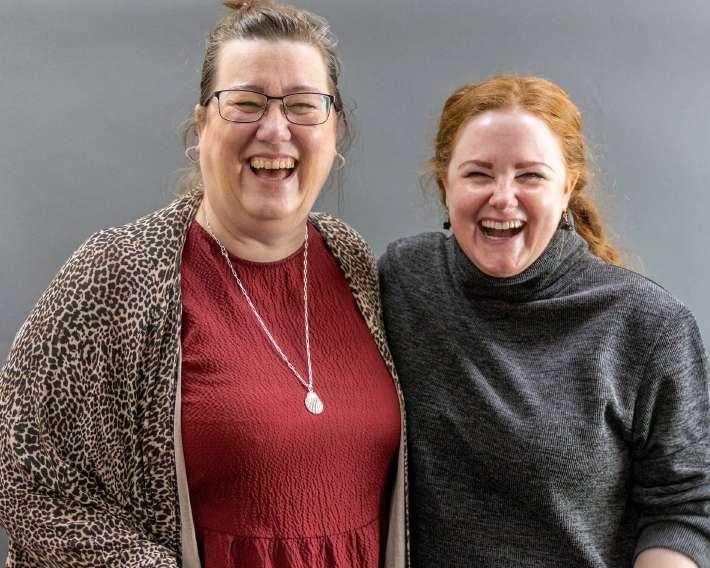
Theatre hasn’t always been high brow. We haven’t always shushed the crowds and lectured on etiquette. In fact, the first theatre productions were religious tales written in ordinary language (over Latin) and the audiences of Shakespeare were known for their jostling, laughing, and eating during the performance. The wealthy and the everyman sat together in the crowd. Yet, as time has moved on, theatre has become increasingly tied to class and (putting aside the Christmas panto) many working-class folk feel excluded from the space.
That’s why New Perspectives was born. Set up almost fifty years ago to tell the story of David Oluwale, a homeless Nigerian man killed in British police custody, they’re a theatre company dedicated to telling the stories of the ignored and unheard. And, with a rich background as a ‘touring theatre company’, they also put equal emphasis on bringing the stage to non-traditional spaces. As Angharad Jones, Artistic Director at New Perspectives, says, “We make exceptional work that travels to where people live, so we could be playing in a traditional theatre one night and a village hall the next. It’s a way to ensure that geographic or economic barriers don’t stop people seeing our plays.”
Not always simple, Angharad jokes that the biggest hardship is getting everything in the van as they move from place to place. But, additionally, adapting to non-theatre spaces is a technical challenge and she has to ‘tech’ two versions of the show for bigger and smaller spaces, accounting for the lack of lighting and sound equipment in local venues. Yet “there is a real joy to it. And while there might be some stigma to performing in a village hall, we ensure that the quality is there, because that’s what we stand for.”
Further commenting on their values, Executive Director Sally Anne Tye notes that there are three cores that run through the company: “Championing new writing, hearing underrepresented voices, and telling unheard stories.” Hence, a large part of New Perspectives is working with emerging writers through their project Open Pitchdescribed by Participation Director Jayne Williams as “a chance for anybody in the East Midlands to pitch up with a cracking story they might have. It’s a project in which we support two people a year to tell their story by page, stage or screen - because great stories don’t just come from within the industry, they also come from the community we serve.”
Encouraging those who don’t see themselves as artists to enter into the programme, Sally explains that there is a real beauty to the process because “theatre is all around us, so what people might think of as ordinary is actually quite remarkable” - a recent example being the show The Road to Zandra. A collaboration between Jayne and local community member Mark Preston, it tells the real life story of a Nottingham road repairer who transforms himself through drag to become Zandra at night. “Likewise, there was a great family story from someone in Grimsby,” Jayne says. “Her nan wrote to the Coronation Street actress who played Elsie Tanner and they enjoyed a twenty-year-long pen friendship.
So, we supported the writer, Caroline [Beeson Spence], to mine this story and tell it, which resulted in the production Elsie Tanner Knew My Nanna.”
When I ask the group what first drew them to New Perspectives, it’s this desire to support people that shines through. “It’s interesting because I first met New Perspectives sixteen years ago, when I was setting up my own company and I spoke to the artistic director for advice,” Angharad says, “so to be back here is really full circle. I think that people who have generosity of spirit when you come into the industry really affect change, as it did for me.” Likewise, Jayne comments that her first experience with New Perspectives was by having cups of tea with them in the nineties and “valuing, in a similar way to Angharad, what they gave to me, and the kindness.” Because of this, both women wanted to come back and enact the same change - both through their projects, like Open Pitch, and the stories that they tell through the productions.
“If we’re considering ‘why theatre?’ and why we’re telling these stories, it’s because we’re creating an empathy factory where we invite audiences to feel,” Angharad comments when asked about how they choose their stories. “So, I do feel that we have a duty to represent stories that aren’t told often,
because I don’t think that there’s enough of that on our UK stages, and theatre can work as a call to action.” Like with their upcoming production of We Need New Names, which will be showing at the Nottingham Playhouse this June, it is vital to the company to explore stories for and from the ignored or sidelined.
So, as they reach their half-century anniversary, New Perspectives hope to continue the legacy that they’ve already created. As Sally finishes off the interview by saying, “I think we’ve consistently made high-quality theatre accessible to audiences where they live. I think for first-time artists and for audience members alike, we’ve tried to remove barriers to the theatre. That’s what we want to continue.”

We Need New Names is showing at Nottingham Playhouse on Friday 9 and Saturday 10 June
newperspectives.co.uk

I think we’ve consistently made high-quality theatre accessible to audiences where they live - for first-time artists and for audience members alike, we’ve tried to remove barriers to the theatrewords: Lizzy O’Riordan photos: Kelly Mclaughlin & Robert Day
interview: Yasmin Turner
Sinvce first launching in 2013, Nonsuch Studios has played a pivotal role in Nottingham’s cultural development. They’ve created original productions that have toured the UK, worked with thousands of individuals through community projects, and reached millions via their online work.
We chat with Edward Boott, the Artistic Director and Chief Executive of Nonsuch Studios, to find out more about the last ten years, and how you can get involved here in Nottingham…

Congratulations on the tenth anniversary of Nonsuch Studios. Did you ever think that it would grow to play this much of a large and crucial role in Nottingham's theatre and cultural scene?
No, not really. I’ve always described Nonsuch as a dissertation that's gone very much out of control. Ten years ago, we started as a theatre company and we (a collective of artists and theatre-makers) were all based in London. We had grand ambitions in the capital, but that just didn’t happen, so we all moved back home to where we are from originally.
I moved to Nottingham at a time when there wasn’t any infrastructure to support emerging artists. Even though it wasn't that long ago, there were no artist development schemes in the region, there was no real rehearsal space or accessible space. So, essentially, we had to build the things we needed to be a theatre company based in the city.
It's amazing to see the changes; where we've come, how the city has changed, and also the shifts in the region.
What inspired you to launch in 2013?
I did a performance degree at drama school, Rose Bruford College (European Theatre Arts), which was very much like an intensive performance course. However, the aim of that was not to create actors who would get agents and go to auditions, but instead to empower artists and creators to make their own work. So it was a natural progression from that course that students would graduate and create their own theatre companies.
I equally like the performance, directing, and producing side of things, so running a company really fitted into my mindset and my skill set. That’s where Nonsuch emerged from, and then, as more people joined the team, we've grown and shifted and changed in lots of different ways.
Did you face any challenges during the early years?
I think, in particular, getting people to know you're a reliable organisation in terms of creating shows of quality or running good community projects. Getting your foot in the door is obviously really key.
Also, just the level of resources that the city had. Nottingham didn’t have a main rehearsal space. Today, the other theatres in the city use us. For example, we are the main rehearsal space for the Playhouse, as they don't have a rehearsal room.
The main thing was getting access to support and access to opportunities. You really rely on the few people that do give you a chance.
Do you have any highlights from the last decade?
We did a festival on the Riverside Bandstand, which is the first time it had ever been used officially as a performance venue. We also did a festival called Nonsuch on Trent, which was really amazing. We produce shows that tour beyond the city, and our show for babies, Into the Clouds, has gone to the Southbank Centre, and will probably do a much larger international tour next year - which is a particularly exciting opportunity for us.
From a performance perspective, our very first programme show at this venue, when we opened, was called Queens of Sheba. It was part of an amazing programme that we used to run and are trying to rediscover funding for at the moment, where hundreds of students would come for the day to see the show in the morning, then they would workshop with the actors and performers. They were hard-hitting shows for teenagers that really met teenagers at where they were in their lives. The response to that was amazing, and the students were coming back in the evenings with their parents and family to come and see the show again.
How can people in the local community get involved with events or any classes that you run?
All our events are on our website, so you can book online or over the phone. We also have a section on our website which is all about the classes and courses that we run, so you just log in and book those.
As a venue, we also host other people’s classes. We have a life drawing class, which is really popular, we have yoga, and so on. Those are all listed on the classes page.
Then, for our community programme, which is work that happens outside of the venue, if you are interested in volunteering or finding out more, email getinvolved@nonsuchstudios.co.uk. If you want to find out about the studios, it’s studios@nonsuchstudios.co.uk - or just fill out the contact form page with your query on the website.
I equally like the performance, directing and producing side of things, so running a company really fitted into my mindset and my skill set. That’s where Nonsuch emerged from
Where do you see Nonsuch Studios ten years from now?
Our big ambition is about bringing back our creative work to the city. 2019 was very much around setting up the venue, and then we've had about two or three years of sorting out the fallout of COVID. This year is about embedding our creative practice, producing more shows in Nottingham, taking our shows on tour, working with artists more locally, fundraising more, and getting some exceptional work made in the city.
Hopefully, in ten years’ time, we’ll have a Fringe Festival and Nottingham will be known for a thriving theatre community where exceptional work at a national and international level is made.

If you’d like to support Nonsuch Studios financially, you can donate or become a member through the website. All our spaces are also available for hire.
nonsuchstudios.co.uk
So, to kick off, how long have your theatres been around?
Alison: We celebrated our centenary last year! The group developed from two amateur societies founded in 1922. In 1970, members purchased an old chapel building in the Lace Market and the Lace Market Theatre Trust, a registered charity, was formed.
Robert: The WBDS was set up after the war, when people were looking for something positive to do. We have scrapbooks from the very beginning - with the first play being The Linden Tree by J. B. Priestley in 1949.
And everyone involved is a volunteer? How do you survive financially?
Alison: Our revenue comes from ticket sales, but everything in our building is sourced and maintained thanks to the passion and expertise of members donating their free time. People volunteer because they love theatre. Even if not on stage, there is a feeling of pride in being part of our friendly team, delivering a good customer experience.
Robert: We’re 100% volunteer-based - we have no paid staff. We do our own sets, front of house service, technical operations, and finances. Tickets cover the costs and make a small profit to keep us afloat, and we invest that in the theatre – lights, facilities, the building, seats, material for plays, and so on.
What do small community theatres bring to Nottingham’s cultural life?
Alison: We focus on drama and, locally, there are fewer opportunities for non-professionals. We have a reputation for offering more challenging and contemporary theatre. Also, our vibrant, award-winning Youth Theatre for elevento-eighteen-year-olds gives a great foundation in performance skills, with past members progressing up to the main theatre and into drama schools.
Robert: We love theatre at WBDS. Indeed, we run theatre visits as part of our social programme. But we are local – by the people of West Bridgford, for the people of West Bridgford. We are the only registered theatre in Rushcliffe, and the only public theatre in West Bridgford. So, we offer local people a chance to do something in their community. We love the Nottingham cultural scene - and hope that, in a small way, we add to it, rather than drawing people away from the big city lights.
And what do volunteers get?
Alison: We keep membership costs low and give people opportunities for up to 14 shows each season; for acting and stage management, set building, props, lighting, sound, and costume. Volunteering is a great way to get to know new people, perhaps learn new skills, and enjoy being part of a friendly team.
Robert: We asked our volunteers this and they gave us a long list, including: the opportunity to be involved in high quality plays; lifelong friendships; laughter; the joy of theatre; the opportunity to work closely with people from different backgrounds; increased confidence; and skills for life.
When it comes to community theatre, Nottingham punches above its weight with a wealth of opportunities. We talk to to Alison Hope, Publicity Coordinator for the Lace Market Theatre, and Robert Dixon, Chair of the West Bridgford Dramatic Society, about their respective theatres and how they’re providing a platform for creativity at all levels…
Are there any success stories you can share with us?
Alison: Many former members went on to work in the industry, some sponsored by the theatre. Martin Berry is Director of Participation at the Playhouse; Janine Forster is a RADA-qualified professional set builder; Milly White was BAFTAnominated for her work in production design; Linda Armstrong appeared as Sister Brigid in The Royal; and Alexander Hanson is a well-known West End actor. Robert: We’ve been going for 75 years. We’ve performed over 300 plays, to a combined total audience of 90,000. There’s no public funding, everyone is a volunteer - so our audiences pay for what they see. We’ve won numerous awards over the years for best play, best director and best actor/actress. Our longestserving member (still active) joined sixty years ago. So, we are a friendly bunch.
We’ve been going for 75 years. We’ve performed over 300 plays, to a combined total audience of 90,000. There’s no public fundingeveryone is a volunteer
Does anything ever go wrong on stage?
Alison: An actor fell off stage and broke a rib, but carried on. Stage curtains caught fire with an ill-placed lantern - they were just stamped out!
Robert: The most common thing is missed lines, but that’s part of real, live theatre. And technically we get problems too - recently our lighting system was playing up and the whole set went dark. The front of house team simply turned on the house lights. Again, the audience just thought that was the way for that play. So, the motto is - carry on, with gusto!
How can people get involved?
Alison: New volunteers are our lifeblood and warmly welcomed. Visit our website for details of open evenings or just pop down to see what you’re interested in. Robert: The best way is to turn up on any Tuesday at 7.30pm for club night. If you are more technically-minded, come on a Saturday at 10am, to help with set building.
How do you see the future for your theatre?
Alison: Our focus is to encourage the next generation of actors and, importantly, volunteers, to keep the theatre running. Our doors are open to everyone, and we want to reflect the diversity in our city, continuing the theatre’s excellent reputation for another 100 years!
Robert: We’d like to give more difficult theatre a go - we don’t often do Shakespeare. And we rarely do classic panto - but maybe one with a proper West Bridgford twist could be on the cards. We love to encourage new talent, so would like to see more people take more different roles: directing, set design, sound, and light. So, lots to do!
lacemarkettheatre.co.uk wbds.co.uk


Stapleford-born actress and playwright Katie Redford is currently listed on the BBC New Talent Hotlist, and it’s easy to see why - her impressive portfolio includes theatre, radio, and a BAFTA Rocliffe TV Comedy award, after all.

Ahead of its UK tour, we chat to Katie about her debut stage play, Tapped, which went into production last year and landed her an Offie nomination for Most Promising New Playwright…
Firstly, thank you for speaking to us today! Could you tell us a little bit about yourself and how you got started as an actress and playwright?
Thank you for having me! So, I’m originally from Stapleford, and from quite a young age I knew I wanted to become an actress. When I was eighteen, I trained with the National Youth Theatre, but I actually pulled out of drama school at the last minute.
In one of my first jobs, I was a floor runner for a TV show which featured upcoming writers and actors. While driving them to and from the set, it was really exciting getting to hear the writers talk about their first experience of watching their work come to life for television. I remember thinking after that job, ‘I really want to do that.’
writing, Tapped developed into so much more. It became a play about real, relatable characters in real, relatable situations just trying to make it work.
Tapped was meant to launch back in 2020, but obviously lockdown happened and the future of theatre was unpredictable and unknown. I think, in a way, when Tapped finally got its debut, it was the best time for it. The play is essentially about the importance of human connection, which is something we lost for nearly two years. It felt even more relevant when it debuted around this time last year.
Could you explain how you approached the writing process? How did you develop the play’s structure and create the characters?
I wrote the first draft fairly quickly. I entered it into Theatre503’s International Playwriting Award and it was shortlisted. I got some feedback from their Literary Manager, Steve Harper, who was brilliant and an important person throughout the writing and redrafting process.
In 2015, I won the BBC Norman Beaton Fellowship, which is a scheme run by BBC Radio Drama to help actors who haven’t trained at accredited drama schools. This jump started my professional career, as I got a six month contract working with the Radio Drama Company. From there, I started working as an actress on some really lovely projects, such as Mount Pleasant, Still Open All Hours and Young Hyacinth.
I started writing because I got frustrated when the phone stopped ringing. I felt like I was losing patience, I desperately wanted to do something and needed to be creative. I began writing short plays, which helped to build my confidence and led to me becoming a member of the BBC Writersroom's Comedy Room. A few years later, I won the 2019 BAFTA Rocliffe New Writing Competition for TV Comedy, which really opened some doors for me. Since then, I’ve been writing for radio, stage and TV, and have produced projects such as Ghosted, Yellow Lips, Christmas Wings and Tapped
Sounds exciting! Was there anything in particular that inspired you to write Tapped?
The initial idea came from a friend of mine who was launching a start-up company with the intention of pushing people out of their comfort zone. But, as I started
I don’t really have a set method. I barely plan or know what my end is until I’m actually doing it. For me, a lot of my work is about the characters. There’s a particular moment in Tapped where you see these relationships strengthen purely from a conversation about Nando’s! It’s the little, relatable things that connect us regardless of our age, background, what spice you get at Nando’s… that’s what brings us together.
My process, therefore, was essentially about getting to know the characters. Instead of trying to think about a big plot, they led the way for me and came alive the more I wrote. I get a lot of inspiration from what I’ve overheard people say. I have notes on my phone with random conversations I’ve heard on the street or in the shops – I think ‘what character could be like that, or say this?’ and the plot grows organically from that.
As you’re probably aware, mental health portrayals in theatre can be a great way to spark discussion and personal reflection for the audience. Was this an important factor when deciding to include this theme in your play?
Honestly, no. I feel like, creatively, that would’ve really blocked me. Mental health is a theme that was introduced naturally, and I think it was really important to portray it as such, rather than trying to dress it up a certain way.
One of the characters has struggled with it and has a history of mental illness within their family. If someone has a mental illness, it’s a part of life. It’s not something
you can suddenly get better from; you learn to cope with it. Sometimes, I think people don’t know how to talk about it, so as a result things are left unsaid for years and years. That’s something I wanted to address with Tappedthings can only go unsaid for so long without there being problems. Rather than looking outward for solutions, it’s about going inward and seeing how we can make ourselves better.
Did you encounter any challenges while producing Tapped? What would you do differently next time?
The entire production is set in one room - a garage. There are also only three characters, so I think one of my biggest challenges was overcoming the pressure of keeping an audience entertained for over an hour and a half. There was the stress of hoping the audience will like and root for the characters, too, which was especially important to get right.
My advice to myself for next time is to remember that, when the play comes to life, there’s a team of people who are there to help. You don’t need to have everything figured out. I was really worried about the transitions between scenes, I had no clue how to illustrate that fifteen minutes had passed on stage, but that’s what the team is there for!
Just remember: write from the heart and the rest will follow.
If you could sum up Tapped in three words, what would they be?
Heart-warming. Vulnerable. Club biscuits…?
What are your next steps and goals for the future? Is there anything you’re currently working on that you can share with us?
At the moment, I’m writing my second play, which I’m developing with a company called Theatre Centre. I can’t reveal too much yet, but it’s a play that I hope will be very relatable, exciting, bold and a little bit angry…
I’m also hoping to create something, a short film perhaps, with a team of collaborators which I’d love to be able to do in Nottingham. With most of what I write, I automatically think of Nottingham as the place to set it - I think it’s because it’s home. So, it would be really cool to make something there as well.
For all of the aspiring writers out there, could you tell us a particularly helpful piece of advice you’ve gotten as a writer?
Don’t get it right, get it written. Perfection is the enemy.
Tapped is coming to the Nottingham Playhouse on Saturday 20 May nottinghamplayhouse.co.uk


My process was essentially about getting to know the characters. Instead of trying to think about a big plot, they led the way for me and came alive the more I wroteinterview: Cara Vallance photos: Harri Bentley and Lidia Crisafulli
We recently teamed up with Nottingham Trent University to support their Images of Research Competition, which asked researchers and academics to submit a unique, creative image that captures the essence of their work, or an element of it, in an artistic way. Our Photography Editor, Nathan Langman, was on the judging panel, and helped to pick this powerful shot from Postgraduate Researcher Sally Bashford-Squires as the winner.
Sally says: “This is the joyful moment when Rose received a sheep. The image was taken during my PhD research examining how social enterprise projects impact women's health in rural Uganda. Rose belongs to an indigenous women's group who farm, dance, and sing together. I researched how their performances are used to sensitise the community to issues such as gender-based violence.
“When a lamb is born, it is gifted to a chosen member of the group. This communitarian ethos, based on Afrocentric values of relationality and reciprocity, can help benefit health and wellbeing through shared knowledge and farming practices. The project not only provides women with a safe space, but it also helps them grow food to share, which in turn enables those affected by HIV to take medication. Rose explains, "We are happy ladies and happy friends. Women can provide so we ask men less and so there is less violence."
Find out more about the competition on the NTU website
ntu.ac.uk/research/images-of-research-competition-2022
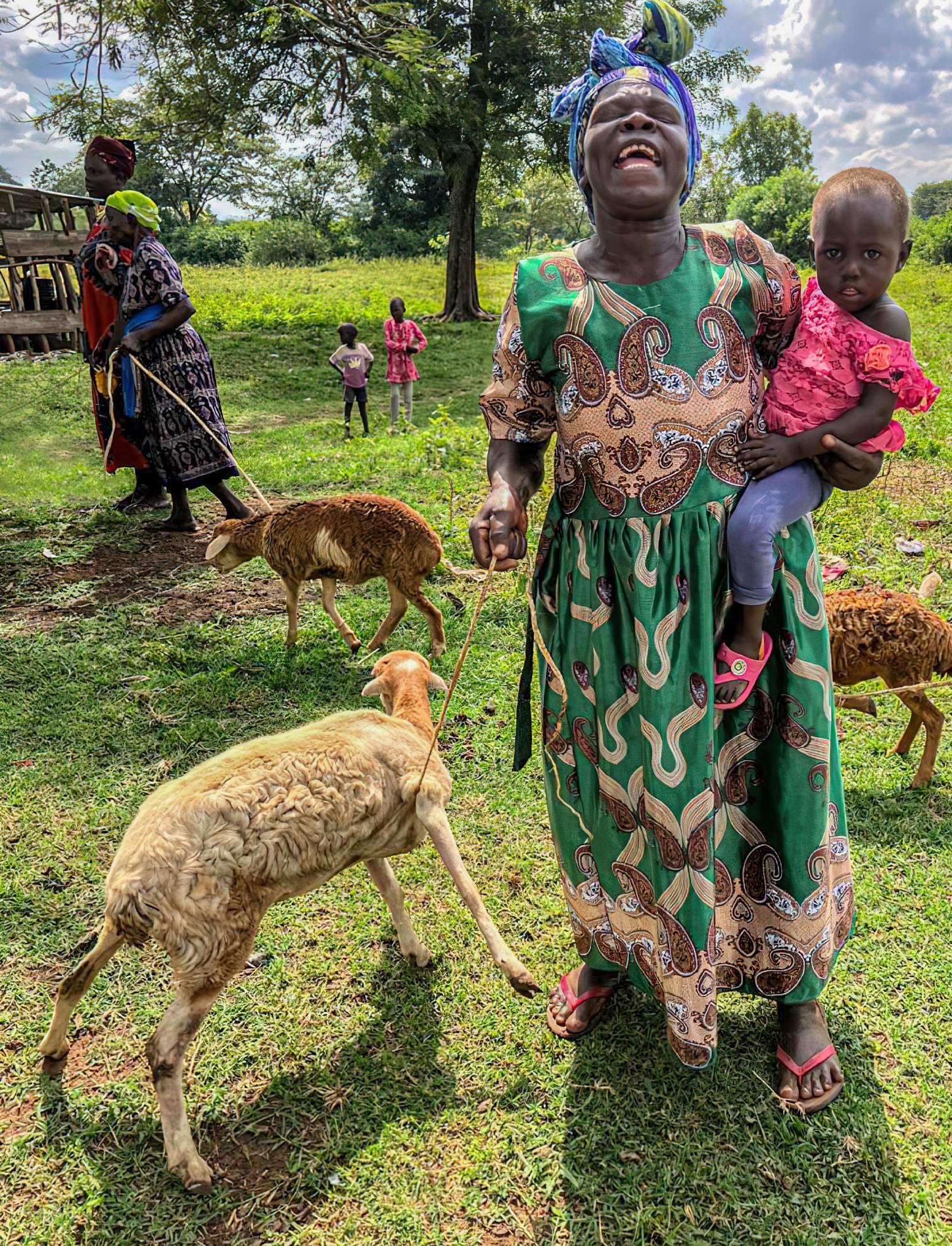
words: Julia Head
photos: Nathan Langman
Beeston might not boast the same sunny weather and stunning sea views as Sicily, but it does boast some of its famous meals - thanks to Compà, the street food joint on Wollaton Road. We swing by to check it out for ourselves…
Compà, which is slang for ‘friend’ in Italy - particularly the western part of Sicily - is a family-run restaurant in Beeston specialising in Sicilian street food.

Stepping inside, you are greeted by a projection of videos of the island onto the wall, and the tablecloths are printed with classic Mediterranean blue and yellow tiles which reminded us of our holiday to the Amalfi Coast. This setting, paired with one of the nicest Aperol spritzes I've had in a while, certainly made me feel like I was abroad and not in Beeston on a cold night. Plus, you get snacks with your aperitivo, which really makes you feel like you're on your holidays.
The restaurant is owned and run by Angela and Massimo, a couple from Sicily who spend their time in the kitchen creating family recipes that have quite literally been passed down from generations before them. Their son, Andrea, is the restaurant manager and the face that welcomes you with many years of hospitality experience behind him, including being made manager at Piccolino at just 21 years old.
“Despite my young age, I was trying my best to be the best. I focused on learning English, and once I couldn’t progress further at the current restaurant I was working at, I helped my parents open their own restaurant. Remaining very optimistic and ambitious has helped me a lot in my life,” Andrea muses.
The family first visited England in 2007 for a holiday and fell in love with the country, vowing to return. A decade later, they finally made the big step and settled in Nottingham. With a dream of opening their own Sicilian restaurant, Angela and Massimo put their heads down and made this a reality, opening Compà
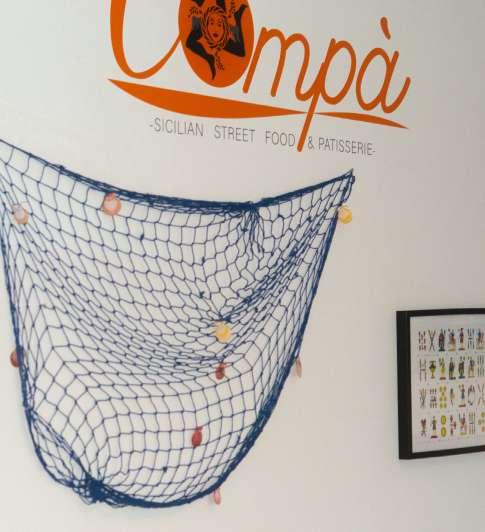

in Beeston in 2022. Having only been open a year, the company is expanding quickly, I’m told - with high hopes of opening a city centre branch in the future.
Compà encourage you to eat like the Italians, with the traditional four-course meal starting with antipasti, moving onto primi, working your way to secondi, and ending with dolci. Impressively, every single dish on the menu is homemade, including the cannoli shells stuffed with creamy, sweet ricotta. The antipasti menu boasts the likes of various filled arancini, pomodoro bruschetta, creamy burrata, homemade caponata, and focaccia. For primi, you can expect everything from lasagne to beef ragu rigatoni – a recipe passed on from Angela’s mother, which she learned to make when she was just seven years old. Secondi will treat you to one of their house specialities; homemade slow-cooked porchetta with Italian herbs. Desserts are also made in-house, and they serve some lovely homemade treats from the patisserie section.
The restaurant can also be rented out for private events with a bespoke menu. Keep an eye on their socials because, from September, nonna herself will be visiting from Sicily to host a cooking masterclass and help to redesign the winter menu.
“Our passion has always been cooking. We have always shared the love for authentic Sicilian cuisine that our grandmothers and our mothers have taught us. Growing up, our home has always been full of friends with whom we share our culinary creations. Our restaurant is like us: simple, clean and imperfect, but always ready to welcome you with the warmth and friendliness of the Sicilian soul,” Angela says.
Living in Britain, many would expect a variety of pasta dishes on the menu at an Italian restaurant, but Compà focus on Sicilian street food which allows you to taste dishes you wouldn’t ordinarily try. Think of it as Italian tapas, but at a very reasonable price – no dish on the menu is more than £10. We are told that the quality of ingredients used is the best on the market, and that they are one of few restaurants who don’t use a freezer/microwave combination to cook the food they serve, as everything is fresh and “made with love.”
The hospitality is second-to-none, and on a previous visit we have been treated by Andrea to a variety of dishes to try - which felt like being held hostage by the world's nicest man and forced to eat so much Italian food that you practically rolled out the door by the end of it. But, of course, we were only happy to oblige.
compasicily.co.uk
To Visit The Stage Pub
Yeah, we know, it’s an on-the-nose pick - but The Stage Pub is a Nottingham staple, promising good vibes, good drinks, and good prices.
facebook.com/
Thestagepubnottingham
To Nosh
Any Pizza - The Playwright
We definitely didn’t just choose this for the name, either… For real, though, The Playwright is a genuine recommendation from us lot, delivering great pizzas every time.
@theplaywright38
To Sup
Any Pint - Yarn
If you’ve been to any event at the Theatre Royal, you really should have stopped by Yarn, the neighbouring pub offering a wide range of local brewsfrom Castle Rock to Black Iris.
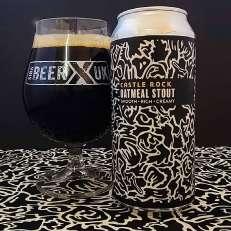


@yarnbarnottingham
Rock Brewery
Speaking of Castle Rock, they’re always putting on fresh events and launching fresh beers. Drop them a follow to stay in the know. @crbrewery
Our passion has always been cooking. We have always shared the love for authentic Sicilian cuisine that our grandmothers and our mothers have taught us
Imagine a tray of salty, crunchy tortillas. Now slap on some vegan mince, pinto beans, fresh peppers and salsa. Gleefully sprinkle some jalapenos and dairy-free cheese. Pop on some red onions and pineapple chunks. Then slather it all in gorgeous hot sauce. You now have yourself some chilli loaded nachos.
Yet, even if you try to follow this guide at home, with all the good will and top quality supermarket ingredients in the world, it’d be impossible for you to reach the heady heights of Carolina’s Chilli Loaded Nachos. It’s not a dig, it’s just the truth. Because, whipping up a feast from their fancy food stall in Sherwood Vegan Market, Angela and Mark manage to put together one of the finest Tex-Mex meals you’re likely to try. It just happens to be vegan and gluten-free.
The ingredients taste fresh and flavourful. The homemade hot sauce - Scarlett’s, Carolina’s own creation - takes things to another level And even the pineapple, which I wouldn’t consider a must-add if I was making this dish, goes down a treat. Each layer of food adds a new wave of deliciousness, until the fake meat sweats take hold and you need a lie down. It’s a real journey, working your way through this, and every step is one of utter delight.
So, when you’re next out and about in Sherwood Vegan Market - or any selfrespecting street food market, for that matter - keep your eye out for the vibrant colours of the Carolina’s Chilli food stall, and take a punt on a proper plate of nachos. You won’t regret it.
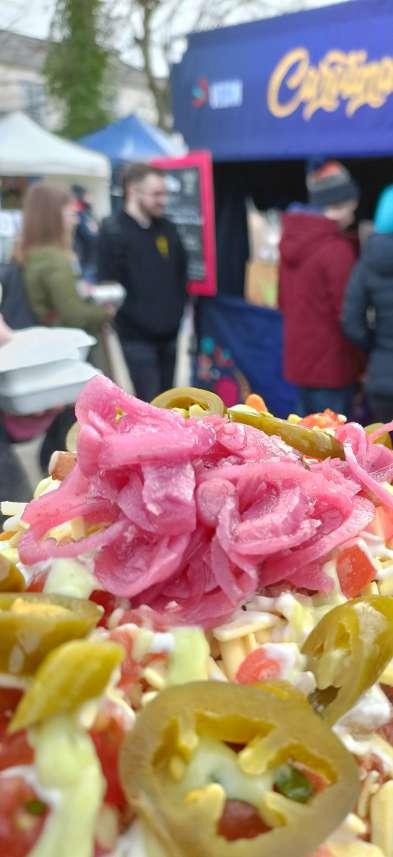 George White
George White
Hear the words ‘street food’ and you’ll likely picture a pretentious and overpriced piece of meat on a stick, scattered with some limp leaves (read: any London food market). Here in Notts, however, we know how to do things properly. Street Food Kitchen is the place to be for proper authentic grub, albeit not from the back of a van (although they do have a food truck, too).
A Mediterranean-style flatbread isn’t your usual breakfast meal, least of all in Long Eaton, but I was promised good things of chef Phil’s specialty dish – and let me tell you, it didn’t disappoint.

A melting pot of cultural influences crowd the toasted ciabatta options, with sumptuous toppings ranging from BBQ pulled pork with Monterey jack cheese to tandoori chicken and mango chutney, complete with an onion bhaji.
Playing it somewhat safe for 10 am, I opted for the Greek-inspired lemon and herb grilled chicken with a heavy drizzle of tzatziki. (The peri peri chips - included as a side - were a brave enough venture for this hour). Sat across from the Italian Vespa decor and a vintage ‘citron’ sign, I wasn't certain where this street food was transporting me to, but I’d happily go again.
For those looking for a more traditional brekkie, there’s your greasy fry-up (the beef sausages add a slightly exotic spin on your British cult classic), but the likes of salmon and avo on toast are available for the more trendy and health conscious among us (this one won’t break the bank, either - Kirstie Allsopp, eat your heart out).

Having opened during the whirlwind that was 2020, it’s all the more impressive that they now hold the Blue Ribbon Good Food Award for cafes. Based on customer reviews, recipients are chosen for their food quality, service and value - things Street Food Kitchen doesn’t falter on.
Run by the power duo Phil and Julie (and them alone), the pair are now opening on the occasional Friday evening and hope to expand their catering service to sell in workplaces in the city. Tasty and affordable street food, coming to an office near you (we hope!).
Lilith HudsonVarious locations
facebook.com/Streetfoodkitchen1
79 College Street, Long Eaton, NG10 4NN
Every job has its perks, and one of the biggest perks of working at LeftLion is being invited to try the delicious menus of the city’s best food venues. One example of which is Junkyardthe bottle shop and pour house tucked away in Bridlesmith Walk.
Known by many beer lovers for their craft selection, it’s a well-respected venue among the local booze-hounds. But it’s also a great spot for food, as I found out by sampling the menu alongside the rest of the LeftLion team. With almost too much to talk about, I’ll start this review by mentioning my absolute favourites. First off are the Soy and Ginger Pork Cheek Cabbage Rolls, which hit the perfect savoury balance. Second up, the humble Roasted Beets, which met their perfect match with a maple and garlic yoghurt sauce. Then, finally, the Za’atar Chicken Schnitzel - perfectly cooked and served with enough pickles for any die-hard gherkin lover. However, this certainly wasn’t where my sampling journey ended, and I also had the pleasure of trying Grilled Turkish Peppers with truffle honey; Overnight Beer-Braised Brisket; Pan-Fried Harissa Mackerel; Hasselback Potatoes; and (as if that weren’t enough) their delicious smashburger.
All of the highest quality, the food was cooked with love, and the service was warm and friendly. Hand-picked from a really exciting menu, each small plate felt intentional and fresh. So, next time you’re wondering where to eat, I heartily recommend popping your head down the hidden Bridlesmith Walk. More than just a beer joint, you won’t regret it.
Lizzy O’Riordan12
@jydpoho
Bridlesmith Walk, Nottingham, NG1 2HAinterview: Lizzy O’Riordan illustration: AJ
LeftLion’s former leader, and uniquely talented creative, Bridie Squires is launching her very first poetry book, Duck on Bike. We hear about how Nottingham, lockdown, and loneliness influenced this no-holds-barred collection…
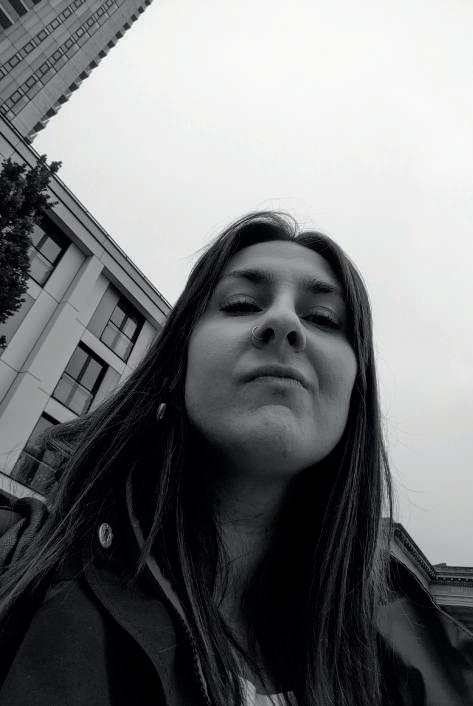
First off, congratulations on launching your debut poetry book, Duck on Bike. Can you tell us a bit about the collection?
Thank you so much. Duck on Bike is made up of poetry I’ve written over the past ten years. I’m self-publishing. One day I’ll do a ‘proper’ collection – something more curated, with a specific theme in mind, in collaboration with a ‘real-life’ publisher. But Duck on Bike is really a thing of catharsis. These poems needed a home. They are rough and ready, covered in spit and blood, and I’m proud of them as truths and processes. It would have been a disservice to my craft to leave them to die in a Google Drive folder, so now they find themselves in this place, together, as a fucked-up family telling a story. It’s my story, so that diary-esque narrative is very clear to me. I hope that comes through for readers.
Nottingham is in the veins of Duck on Bike. Local areas, streets and landmarks punctuate it, and, in my mind’s ears, it sings with the rounded vowels and dropped consonants of my grandparents

To quote Delivery Day, the collection is “funny and sad all at once”. Although it didn’t feel like it at the time, I now see that writing has been my therapy over the years. Pulling it together, reading it over and over to edit the thing has been quite emotionally draining. It is full of grief, family break-ups, failed relationships, lockdown, and loneliness. But woe is not me. Phone notes and scribbles have birthed celebrations of everyday joys, surreal supermarket trips, cowboy flashbacks, friendship, love and, of course, lots of birds. It’s been amazing working with AJ to pull out images from the work to inform his incredible illustrations. His scratchy, spindly style was just what I wanted. To me, it reflects how the poems feel.
You obviously have a very strong Nottingham connection, and the name of the project speaks to that. How pivotal has Notts been to you as a writer?
Nottingham is my home. For years, I have bombed around it on a Raleigh Burner. I always say that someday I will leave this place, but there is something constantly anchoring me: bagging a job at LeftLion as a shaky-handed, sweaty-palmed kid; being a part of Mouthy Poets collective; becoming NTU’s first Writer in Residence; founding GOBS Collective… Even my one-woman show, Casino Zero, was based on my experiences working as a croupier at the old Gala on Maid Marian Way. I am so grateful and very lucky that I have been afforded all these opportunities. I have worked hard over the years, but I do feel that, on some level, stars have aligned for me in this city. So yes, definitely. Nottingham has provided me a community to grow with, a river to run around, and artists to aspire to.
Your poem Mardy was published in audio form through the BBC in 2018. That has a real focus on local dialect and identity. Does that thread run through this collection too?
Nottingham is in the veins of Duck on Bike. Local areas, streets and landmarks punctuate it, and, in my mind’s ears, it sings with the rounded vowels and dropped consonants of my grandparents. That isn’t to say that I’ve written it in a phonetic Nottingham accent, and I actually decided not to include Mardy in the book. Conceptually, it’s fine, and actually fits with the narrative well, but seeing it written down again made me cringe – I think I overdid it on the phonetically-spelt accent thing. It feels much better as a performance and belongs in the audio waves.
Duck on Bike focuses on finding humour and playfulness in loneliness and heartache, and Nottingham is simply the setting for that. But I guess, on reflection, that feels like a very ‘Nottingham’ way of dealing with things, actually. I’m very much born and bred here. And I feel confident in saying that this is my truth; this is authentically my voice. If it comes across as at all ‘Nottingham’, it’s pretty much an accident – I’ve just written what I know.
A real mix of song, fiction, memoir, poetry. How did you decide on the form of this collection?
I never finish anything. As a kid, as soon as I learned how to play a tune on an instrument, that was that. Let me try the next thing now. I’ve always naturally found myself trying new stuff when it comes to poetry, keen to push it forward into a different direction, and this collection is the accumulation of those experiments. A real mish-mash. I’m very grateful for all the opportunities afforded to me by Mouthy Poets to both play with and showcase my words. All the introductions to new techniques and different artist facilitators – all of this made way for ideas.
The ‘mix of memoir and fiction’ really speaks to the surrealism of some of the pieces. I enjoy taking real-life situations or characters and remixing them with what-ifs, or taking them for a walk along my subconscious for a kind of waking dream. Also, following my one-woman show development using a loop station, I’ve found more of a sense of musicality in my work, and have begun including more song-like sections and refrains.
In terms of ordering the pieces, that has been instinctive. Although it does occasionally flash back, there is a linear timeline; while it is often tumultuous, I’m happy to say that everything lands in a place of peace.
A co-founder of GOBS Collective and an active member of the spoken word community, what was it like to get your poems down on paper when you’re so used to speaking them?
While I know I still have a lot to learn in terms of performance, I am quite confident on stage after years of shitting myself, doing my thing, and finishing on such a high. I have always felt such a positive energy from the room that told me, most of the time, ‘Oh, that went quite well, actually.’ I still get nervous before shows, but I have done it enough now to know that it will probably be okay.
Now, I am scared. On the page, your words have nowhere to hide. This is the kind of thing ‘proper’ poets with ‘proper’ books and ‘proper’ publishers do, isn’t it? And here I am, self-publishing my ‘a poem is never finished, only abandoned’ joys and heartaches. I feel vulnerable. At some point, you have to say, ‘Well, you know what? This is my truth in all its imperfection. If you enjoy it, you enjoy it. If you don’t, you don’t.’ I’m in my Jason Williamson era. Fuck off.
The book is also having a launch! What can we expect from that evening?
A copy of Duck on Bike in your hands. A glass of fizz. Tasty snacks. A big fat hug. Support performances from my dear GOBS co-founder Ioney Smallhorne and Duck on Bike illustrator AJ. A journey through Duck on Bike from myself. And some proper slinky tunes from my darling Alex Traska.
Ioney Smallhorne has been working on a brilliant and fascinating project called Jamaica and Her Daughters, and she may well bring some of the work from that. I am such a fan of her frank passion and intelligent metaphors. AJ will bring a blend of music and poetry with all his wonderful weirdness. Alex is the founder of MyHouseYourHouse and one half of Loose Joints – you’ll often find him spinning vinyl in the Angel on Sundays. He’s bringing hip hop, soul, funk, and jazz to decorate the evening with. I’m very lucky to have the support of such wonderful people.
As for my sharing, I’m bringing my loop station. I’m looking forward to bringing back to life poems that haven’t been performed for years. It’ll be a journey. A proper knees-up.
Bridie Squires’ Duck on Bike Launch will take place at The Carousel, Hockley, on Saturday 13 May, 7pm. £10 tickets include a copy of the book. Duck on Bike is also available to order for pre-sale at £10 + P&P
bridiequires.com
Plays aren’t novels, though many novelists make great playwrights and many playwrights make great novelists. Sure, you can read a play just like a book, and enjoy all the same depths that are found in the former. Yet, still, the truth stands: they aren’t the same.

Why? Because a play is alive while a novel is static. And, though the publication of a book means you’re immortalising your words forever, plays jump and shift and change with the audience and space they inhabit. From the Christmas pantomime, which rotates insults depending on the town within which it's playing, to the performances of William Shakespeare, which would jostle and tease their contemporary audience, it’s an innately interactive form of art.
This is special, because it means that your experience attending a theatre production is truly unique every time. Plus, it makes you into a creator. A play couldn’t exist without an audience, and it ceases to exist the second everyone goes home. The form exists because of this bouncing and connection between performers and audience. As comedy theatre group Major Labia said in our recent interview, “theatre is all about having energy to feed off”, and this is at the very core of the artform.
interview: Lizzy O’Riordan
Inspired by the beauty of the natural world, Richard C. Bower muses on our relationship with the earth in his new poetry collection, Pleasures In The Pathless Woods. Featuring 76 poems set across four seasons, it’s a project that focuses on experiencing the present moment. We catch up with the local author about the process, contemplating beauty, and his upcoming book…
The first thing I’d really like to talk about is your new poetry project, Pleasures In The Pathless Woods. Can you tell me about that?

In a nutshell, Pleasures In The Pathless Woods is about nature. It’s about appreciating beauty and splendour throughout every season. The collection itself is broken into seasons, so the reader can approach each poem within the necessary season, which brings it to life. I like to think it works because the collection will stay with someone throughout the year, rather than just quickly being read. And, hopefully, it will help them to notice beauty where they didn’t see it before.
It sounds quite contemplative then…
Yes. On the surface the writing is quite rich, in that it’s very visual, but my poems are also known for being quite philosophical - so there are always undercurrents to it. That’s another reason as to why the poems are spaced out within a season, because there are these underlying thoughts that people can contemplate for a few days and revisit.
This is your third poetry collection, following Postmodern and Sanctuary. Did they inform or lead up to this collection in any way?
I think Pleasures does need the context of my other collections, because it really speaks to where I am right now in life. My first book, Postmodern, was written when I was going through a difficult time. I call it my punk collection because those poems were me taking what life threw at me, chewing it up and spitting it back out. It was written at a time where I was unhappy and self-medicating excessively, trying to escape reality. When my second book, Sanctuary, came out, I wanted to get away from that lifeso I went to live in a Buddhist community for six months. On reflection, though, that was still me looking to escape in some way. But Pleasures In The Pathless Woods is very much in the moment. It’s about finding the beauty here. I don’t need to get out of my head, I don’t need to go anywhere else, I can just be and appreciate life.
The natural imagery really captures that present moment you’re talking about…
also all about capturing that energy within the natural world. It was written in the second lockdown, when spring was vibrant. At that time, there were no vapour trails in the sky and the birds seemed even more audible than normal. It was a time for people to be really aware of what we had.
Expedition Around My Garden is described as somewhere between a novel and an epic poem. Why did you decide to get so experimental with the style?
I never really sat down and thought about the form. Instead, I just wrote. I’ve always written for myself first and foremost, and it was the same here. Then, within a matter of three weeks, I had these piles of papers which I sent off to a professor in English Literature. He told me it could become a novel and I wasn’t going to argue with that. So, from that moment, it’s been termed a novel - but it also has poetry woven throughout it. For me, above all, it's documentation. The terminology is just for marketing people, I think. As an artist and creative, you just create.
So, this month, why not broaden your horizons when it comes to the kind of stories you’re consuming, and give live performances a try? Whether that’s going to see productions like the RSC’s Julius Caesar at the Theatre Royal, catching the timeless Romeo and Juliet at Lakeside Arts, or perhaps keeping your eye out for a community production in your local park or churchyard. Whatever the price, whatever the production, you’re in for a beautifully transitory experience.
words: Lizzy O’Riordan
Absolutely. And this ties into my other new book, too, which is named An Expedition Around My Garden. That’s
Expedition Around My Garden isn’t released yet, but it’s already gained acclaim in India. For our final question, can you say more about that?
On the back of this book, I’ve been invited to India to do the official book release. There was a very famous author in India named Rabindranath Tagore, who wrote dramas, music, plays and poetry, alongside writing the national anthem in India. My new book has been likened to the themes in Rabindranath’s book, Gitanjali, so I’ve been invited over as a cultural exchange ambassador to visit Shantiniketan, which is a UNESCO world heritage site, similar to Nottingham. I will be there on Tagore’s birthday to celebrate my work alongside his.
You can purchase Pleasures In The Pathless Woods from Waterstones or Amazon. Expedition Around My Garden will be available from Tuesday 9 May
An Evening
Jennifer Saint
If you’re into retelling myths, then this is the perfect event for you.
Join Jennifer Saint as she chats her new book, Atlanta - reimagining the classic story of a baby left exposed on the mountainside.
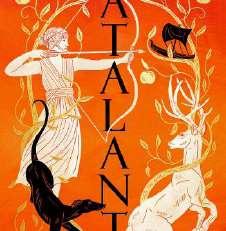
Thursday 4 May, Waterstones

Read along with Five Leaves’ book club as they dive into Ocean Vuong’s debut novel On Earth We’re Briefly Gorgeous - told in the form of a letter written to the protagonist's illiterate mother.

You might remember Hannah from our literature edition. If you liked her poem, there’s plenty more where that came from. Drop her a follow on Instagram for more quality writing.
@hannahnozza
I don’t need to get out of my head, I don’t need to go anywhere else, I can just be and appreciate life
A play couldn’t exist without an audience, and it ceases to exist the second everyone goes home
Last summer, for our milestone 150th edition, we named Notts designer Suzanne Ford as one of our ones to watch, a name we predicted we’ll be talking about for years to come. And, boy, do we love it when we’re right. Since we last spoke, Suzanne’s eye-catching sustainable fashion brand has been turning heads across the nation. Fresh off the back of the launch of her first physical store, which opened its striking pink doors in Beeston last month, we catch up with the fashionista to see what she’s been up to…

It seems like you’ve been really busy since we last caught up, so what have you been up to? Since we last spoke, our orders seemed to spike, which was really nice - with the hand-painted pieces, particularly. That was probably around the time that we chatted last year, and it's just been growing since then. The more consistent it got, the more I felt that I could maybe start opening my own space. My seamstress, Molly, and I were just really struggling for space sewing in our homes, and we needed extra room - so we thought now is the time to take the plunge and find a place.
We were looking at a number of spots and hoping to have space for our studio in the back to do workshops, but also for us to make clothes in. But we also wanted a shop at the front so we could make sure our income is diversified, but also to support other local makers. It took a little journey, but we found this place through word-of-mouth and we had to do a little Dragons' Denstyle application. We put our case forward with graphs and projections, and thankfully they picked us. That was a huge confidence boost for me, as no one had ever seen the vision before. It felt amazing to have that validation.
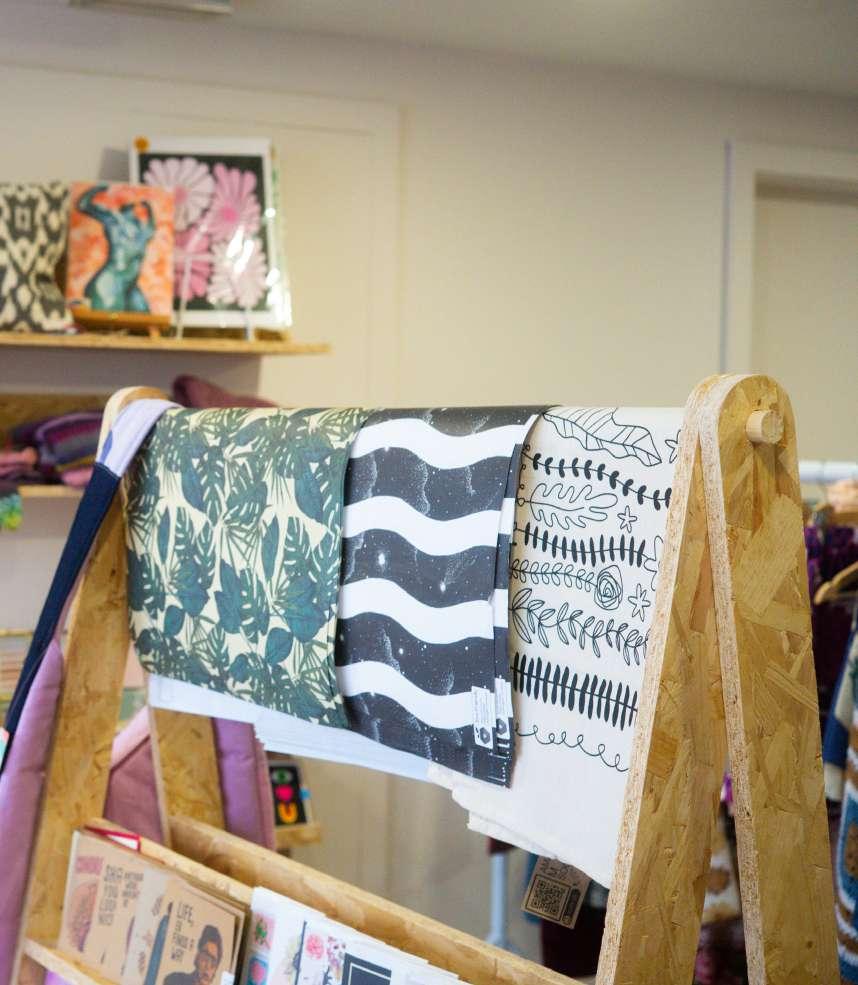
How has the shop been received by people since you opened?
Oh my gosh, since opening the shop, people have just been so friendly, so kind, and so supportive. We get comments from people saying, “I love what you're doing.” Or, “I love the sustainability and the creativity.” And many of them seem to love that they can see the sewing machines and where the items are made as well as sold - there’s that complete transparency in
the supply chain. That's exactly what I was hoping for, because I was a bit worried about whether people just wouldn't get it. I'm just really grateful because it could have been a flop.
So, have you quit the day job now? I know when we spoke last you were still doing it… I quit in September, as it all really took off in August when we went to Mexico and everything exploded online. I was trying to have a relaxing holiday and all my notifications were pinging, and I gained 4,000 followers in a week or two. I felt like I needed another holiday because we had so many orders to get back on top of! It was insane, but that was when we decided to get a shop. So, I quit the job. Again, it was kind of risky, because I didn't know if that was just a blip. But I’ve been riding the wave ever since, and the day job is no more. This is my full-time now, but I do work on Thursdays as a psychotherapist - as I still love that.
What was the inspiration for the striking pink shop? Is it touching on the colour palette of your clothing? Obviously, I dye my own fabric, so the pink you see outside is a mixture of three of the dye colours I use for my clothing. And I just took that colour into Dulux to match for the paint. We wanted the shop to be loud and proud. We could have just done a normal storefront that’s not vibrant, but I want people to notice it and come in. And it just makes sense to me, as it’s very fun. A constant reminder that I've had to give myself is that it could just go tits-up at any time. I want to not take it too seriously and just have fun. And, if it does end, then I have at least given it a go, I’ve enjoyed it and done it in my way - which is vibrant, fun, and pink. Besides, pink is such a strong colour - it’s just so powerful.
What do you think about Beeston as a spot for your shop?
For me, opening here was based on the fact that of all the markets that I've done, The Garage Chilwell was the most consistent. All the people that turn up there are just repeatedly positive. They love hand-crafted stuff and they seem to value sustainability quite a lot here. I just feel like they’re my kind of audience. They’re very positive people. I’d also particularly looked at the street because there are a lot of cafés and restaurants here that use local and in-season produce, and there’s a zero-waste shop just at the end as well as arts and crafts and a fabric shop on the other side. So it feels like this is a good creative place.
What are your plans for the future and what can people expect from the brand over the next few months?
Over the next few months, there’ll be an increase in the range of affordable garments. That's because I'm going to start getting some of my prints printed for me. I will keep doing the hand-painted pieces, because I know some people really value that. However, some people I’ve noticed just want the piece, and don’t mind so much about it being specifically hand-painted. So if I can make that more affordable for them by getting that sorted - still sustainably, of course - and using organic cotton, for example, then that also frees me up to make more items.
You can find Ford & Guy at 96 Chilwell Road, Beeston NG9 1ES and online
fordandguy.co.uk
@fordandguy
We wanted the shop to be loud and proud. We could have just done a normal storefront that’s not vibrant, but I want people to notice it and come ininterview: Addie Kenogbon photos: Nathan Langman
Producer Anna Griffin may already be a BFI Vision Awardee, have BAFTA long-listed films to her name, and own her own award-winning production company - but she’s not stopping there. Joining forces with Jolyon Rubinstein, of The Revolution Will Be Televised fame, she’s now set up Jolly Griffin: another production company with the aim of developing prize-worthy projects…
Great news! Anna Griffin, Nottingham’s own 2018 Screen Star of Tomorrow, has set up a brand new production company, Jolly Griffin - building on the work of Griffin Pictures, her well-respected, award-winning existing organisation.
But what is a production company, I hear you ask with a slight tinge of embarrassment? Don’t worry, it’s complicated. “Producing is different for everyone in the role - it’s an umbrella term that can capture loads of different things,” Anna explains. “I work directly with writers or writer-directors throughout the entire filmmaking process. Often they’ll come to me when they have an idea, and perhaps they've just got it down on one page - if that. If it captures me, and if I think there’s an audience for it, I’ll collaborate very closely with them to develop that story and get it into a shape and structure that can be developed into a film. Then we’ll work on bringing that film to life, and finally selling it to distributors who can hopefully get it in front of people.”
If you’re a writer or director who gets the chance to work with Anna, you can consider yourself lucky. Simply put, she’s well deserving of that Star of Tomorrow nod - with projects like Calibre finding their way onto Netflix, films like The Tunnel finding themselves on the BAFTA long-list and, most impressively, shorts like A Last Resort finding themselves as the subject of full-page articles in the illustrious LeftLion magazine. Not a bad record, that.

Now, through Jolly Griffin - established alongside The Revolution Will Be Televised’s Jolyon Rubinstein - Anna is hoping to bring more filmmakers’ fresh ideas to life. Provided they have something interesting to say, of course. “I never make stuff solely for entertainment’s sake,” Anna asserts. “I think there's definitely a place for that, particularly now that the world is so shitty and people just want escapismbut that's not where I come from. I always want to make something that can start a conversation. I'm currently working with Samantha Morton on a film called Starlings, for example, which will be set and shot in Nottingham. It's a semi-autobiographical piece about her life here, having left the care system, and it's a beautiful bit of work that explores adolescence and puberty and growing up, but also what it feels like to freefall into the world when you've got no support structure around you. So that film has a message and it will spark a dialogue about care - or lack thereof - in this country.
“Stuff we’re doing at Jolly Griffin will be similar. We've got projects that deal with migration. We've got projects that deal with dyslexia. We've got stuff that will hopefully encourage people to have open conversations and take issues to audiences in a way that they've not experienced before. We don't want to just hammer home our leftie ideologies, but instead tackle subject matters you may think you know everything about from a perspective you've never heard before.”
Many of these ideas will be developed by Rubinstein himself, who Anna instantly “hit it off” with when they met at Sheffield DocFest a few years ago. Then, during the pandemic, they were chatting all the time on Zoom. While the world was taking it slow, they developed a bunch of ideas all channelling the trademark satirical twinge that made him his name - but with a little less of the humour. “Due to Jolyon’s background in comedy, he wasn’t known as a dramatic writer,” Anna notes. “So we started talking and putting some ideas down on paper, and then as the world opened
up, we were able to pitch them to people in real life, including to an amazing woman at BBC Drama, who just really loved what we were coming up with. We've got a couple of script commissions with BBC Drama out of those conversations, and they were both ideas that Jolyon has come up with.”
Whoever is putting ideas to paper or taking up duties behind the camera, though, one thing’s for certain - Notts is where Anna’s heart is. “The East Midlands is so rich with talent, and I feel very lucky to be working with a bunch of those talented people,” Anna says. “I feel quite chuffed that I have been able to help local people bring their short films to life or get scripts into development, and I've been able to offer a home to local talent that can get their ideas out into the film world. What I'm really excited about with Jolly Griffin is that now, through the relationship with the BBC, we have got a platform through which they can get TV ideas in front of people. That’s fantastic.”
Right now, this support for local talent is more important than ever. Anna laments the countless created-by-the-Conservative-Party challenges facing the film industry at the moment, with the centralisation of decision-making, Government-mandated cuts to funding, and consequent migration of talent to London making the lives of independent filmmakers outside of the Big Smoke increasingly difficult. This makes the financing Jolly Griffin gained from the BBC’s Small Indie Fund, and the deliberate application of it locally, particularly crucial. “When the Tories came in and disbanded the UK Film Council, everything became really centralised and all the lottery money that was going to regional screen agencies went to the British Film Institute, which is London-based,” she sighs. “As a result, all the regional activity just dried up. Crews didn't have any work. So that’s why I'm really passionate about staying here and doing things here and, hopefully, re-establishing the industry here to make it somewhere that people can live and can thrive in this field.”
So, when you see the Jolly Griffin logo attached to a project, make sure you show your support - and prove that there’s more to the UK’s creative scene than whatever’s cracking off in the capital. But what’s the first project you can show that support to? “We're doing a story set on Easdale Island, which is off the coast of Scotland, in development with a platform called WaterBear,” Anna says. “They're an amazing streaming platform that has an environmental and social impact element to it. That project is a sort of pilot for a feature-length story... That’s all I can say right now.” In truth, we don’t need all the details - with our city’s own award-winning talent behind it, we know we’ll have a jolly good time when we see it for ourselves.
waterbear.com
@anna_griff
The East Midlands is so rich with talent, and I feel very lucky to be working with a bunch of those talented peopleinterview: George White photo: James Place

We speak to Kai Coombes, co-founder and Managing Director of TankSpace, an Ollerton-based underwater studio that enables film directors and photographers to achieve shots that wouldn’t be possible anywhere else…

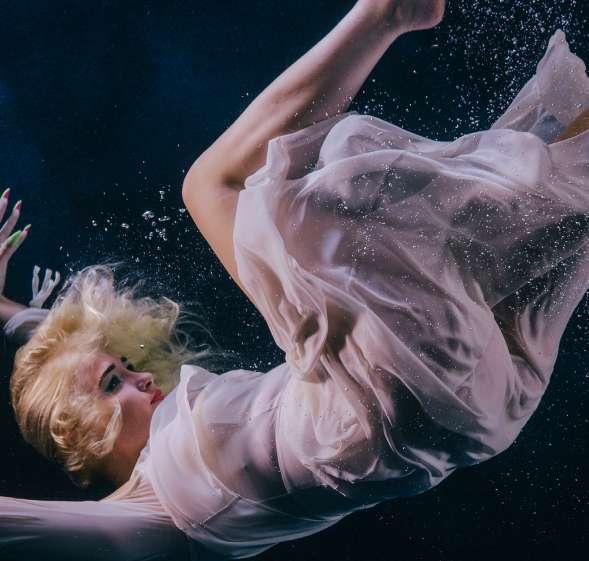
How would you say TankSpace differentiates itself from other commercial businesses?
Our goal is to try and stay on the cutting edge of technology, in terms of the equipment we build, and assure we're ahead of everyone else. When you want to do underwater shots, there aren’t many options - it’s freediving, Hollywood studios, or us - and because of that we’ve managed to accelerate the studio’s reputation.
Now that TankSpace reaches higher-profile clientele in the industry, how do you balance showcasing all creatives versus just the biggest names?
Our main goal is to maintain a level of accessibility for everyone. We work with breakout artists, people all the way up the ladder. I like to pick creatives who have really great qualities and ideas. We’re planning on eventually expanding out to London, but we always want to keep this studio in Notts, with this price point - because it’s really important to support those without a big name behind them that have fantastic ideas.
It’s interesting you mention London… With this being such a niche studio, I was wondering if being Notts-based had any sort of intrinsic tie to TankSpace?
I’ve lived in the Midlands for almost all of my life. Nottingham is, culturally, quite a big part of my upbringing. It’s the birthplace of TankSpace and, even as we expand, I always want to keep it that way. I have found that because Nottingham is not necessarily a filmmaking city, the people in it care a lot more - and you get to work a lot more closely with fewer people, rather than in an overly-saturated market.
What inspired you to set up the studio?
The backstory behind TankSpace is much more random than just us opening up a commercial business. When my partner and I met, she was working as a performer, and one of the things she did was a mermaid performance. I thought this was so different and it made us realise how there isn't anything like that in the UK. So it started out like that.
But during the pandemic, festivals and events obviously all shut down - so we had to focus more on the film aspect of the business, and it really just
exploded from there. We started off just doing mermaid stuff, and it evolved into what it is now. We’ve had people dialling in from Dubai, America, Europe. We’ve built this really nice community; it’s like getting old friends back in when they visit.
What is the most ambitious project you’ve worked on?
We once shot a scene where a girl falls out of a window into an alleyway, which then floods with water, for a big Bollywood production. We had to build this elaborate set in the studio. Figuring out the lighting, the machinery, the safety measures, was a crazy task - and probably the biggest set we’ve built so far.
What has been the most fun project you’ve worked on?
One of my favourites is one of our most recent. We did a documentary about the Loch Ness Monster and its hunters, and there was a guy who was quite an infamous Loch Ness Monster hunter. He was pretty abrasive and the locals absolutely hated him, so they pushed his caravan into the loch. We had to build a scale model of a whole caravan to submerge it into water.
We get everything from Bollywood films to Scottish history. We even did a lost football cup feature for Channel 4. It’s always interesting, and in terms of the really fun technical side of things, the most recent bit of tech we’re trying to work with is solving the problem of camera gears getting wet in close-up, personal shoots.
Hollywood
Our pal Rich Johnson is kicking off an exciting new set of classes at Broadway Cinema this month, investigating the Golden Age of cinema and the difference between ‘actors’ and ‘movie stars’.

Weds 10 May, 10 Weeks
To Watch The Lazarus Project Series two of The Lazarus Project is coming… at some point this year. So, before then, why not catch up with the first season - which features our very own Anjli Mohindra? You’ll have to hit up Sky or NOW TV though, sadly.
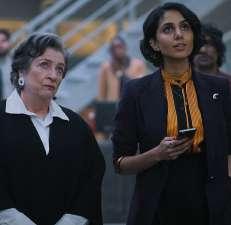
To Follow Mansfield Town Film Festival Mansfield is getting its own film festival, thanks to local lad Jay Martin. Keep up-to-date with all the films and filmmakers that’ll be taking over the Palace Theatre by dropping them a follow on Insta.
@mansfieldtownfilmfestival

Our main goal is to maintain a level of accessibility for everyone. We work with breakout artists, people all the way up the ladder. I like to pick creatives who have really great qualities and ideas

Midnight Rodeo, Nottingham’s genre-bending, boundary-pushing “woozy surf pop sextet” (as they put it), are debuting Dot To Dot Festival as a band this year. We catch up with them ahead of their sure-to-be-a-sell-out show…

Congratulations on being announced as part of the Dot To Dot lineup this year. It’ll be your first time playing it as a band - how are you feeling and what can we expect from your set?

Maddy: We’re both really excited to get to play Dot To Dot this year as a band. I help to run it, so usually I don’t get the chance to participate - but hopefully we can bring some excitement and a big old party. We’ve swapped out a load of our old songs for new, fun tunes, so our main aim is to just have some fun ourselves, really. We’re trying to write songs that we enjoy and everyone else can also engage with. I had a tambourine interlude last time and my hands hurt so much - but it was great!
Jim: I was lucky enough to get to play last year solo, so I’m looking forward to getting to play with the rest of the band, and we’re all just hoping to have a really good time and just dance. It's relentless - I’m jumping around non-stop.

Is there anyone you’re particularly excited to see in this year's lineup, and which venues are you wanting to visit?
Maddy: We were actually discussing this earlier - we’re really excited to see Opus Kink.
Jim: I’m also excited to see Wombo, and loads of local bands like Girlband and Divorce. We love Rough Trade and it’s a really nice space upstairs too.
Which venues in Nottingham are your personal favourites?
Maddy: I work for both The Bodega and Rescue Rooms, but if I'm not saying either of them then Chameleon Arts Cafe or JT Soar. We find Nottingham’s music scene doesn’t really have a definitive sound, it’s just made up of all different really good bands who bring their own elements to the table, which makes it quite special as it’s a small city.
Jim: I love Peggy’s Skylight, as well. It's one of my favourite venues. It's epic, and I really enjoyed getting to play there solo. The calibre of musicians is always so interesting. The music scene is so rife with new talent and bands who are so eclectic and varied. It’s great that we get to be here.
After playing God Save Clermont Festival in France, did you find international crowds differ at all from those you have here in the UK?
Maddy: To be honest, there isn’t the same kind of music scene there at all. We had people coming up to us all weekend, saying, “We just don’t have this here, it’s so good to have all these British bands over.”
Jim: Yeah, people were like, “Rock and roll isn't dead!” We were so confused. In the space of about two days we played Claremont and then Manchester. The venue in France was tiny, but we had such a good time. We were chatting with everyone and no-one knew us before. Whereas Manchester was so different - the crowd were a lot more reserved, but then afterwards everyone was saying how amazing it was. In France, you knew the people loved it, and in the UK, we had to encourage the crowd a bit more - but I suppose it depends where we’re playing.
We find Nottingham’s music scene doesn’t really have a definitive sound, it’s just made up of all different really good bands who bring their own elements to the table
What other festivals are you playing over the summer, and which are you most excited for?
Maddy: We’ve not done a grassy festival, so we're excited for Kendal Calling - the line-up is really good. There are so many bands we’re hoping to catch ourselves, but our set is on Sunday, so we’ll have to go heavy on Friday and take it easy on Saturday. On that Sunday, we get to play that stage with quite a few people we are mates with anyway, so that should be a lot of fun. Also, Great Escape - we’re super excited to play that, as we love Brighton and being by the sea.
Jim: I’m also really excited for Great Escape, it’s always such a mad busy weekend in Brighton - we have a great time whenever we’re there thanks to our label. Every time we’re in the south-east, we’re either playing with a band that we love or going to see bands that we love - we’ve never really seen a bad band there!
Midnight Rodeo are playing Dot To Dot Festival on Sunday 28 May
@midnightrodeoband
5 May
Bearded Theory Festival

This is one we are very excited about! Bearded Theory Festival is back at the end of May in the beautiful grounds of Catton Hall in Derbyshire. The line-up features some incredible names like Interpol, Pretenders, Anna Calvi, Viagra Boys, and Yard Act, as well as Notts artists Girlband and ALT BLK

25-28 May
28 May

BATTLE-ATOMIC DISCO-WOW! (Single)

Those Nottingham funkateer luchadores better known as Revenge of Calculon have only gone and released another belter: BATTLE-ATOMIC DISCO-WOW!. The band readily admits that the track came about because they wanted to make a music video featuring some kind of robot kung fu fight in a discotheque. Whatever the reasons, this is a great single with a sleazy bassline and dirty synth sounds that keep you moving. Out on lurvely white vinyl, and with a great video of kung fu fighters, what's not to like? Bassey
The Hydes
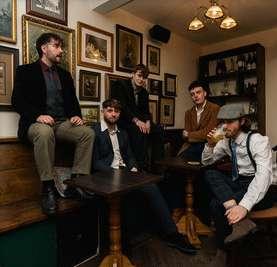
High Life (Single)
It’s the start of a new era for The Hydes. The band, formerly known as Mundane Arcane, are back with a new name - as well as a new single, titled High Life. The track is layered with intriguing and complex guitar rhythms, but the vocals fail to be drowned out, rising above the instrumental to drive the single forward. The chorus may be slightly repetitive lyrically, but this only adds to its catchiness, before the guitar solo in the latter half of the track seals the deal. Gemma Cockrell
The Avion Diego’s £5 Acid (Single)


Punchy from the outset, The Avion make an impression on Diego’s £5 Acid. In their fifth single, they make their punky roots clear with catchy guitar riffs and powerful vocals. The seamless teamwork of the guitar and drums makes the song clearly defined in its structure, and the focus on instrumentals over vocals makes for a nice change to what is usually released among music of this realm. It’s certainly a track which can be translated well live, and will surely be a fan favourite.
Amrit VirdiMarvin’s Revenge
Harry’s Redroom (EP)
Harry’s Redroom is one of the most groundbreaking EPs that I have listened to in recent years. It’s one of those moments of glory - a transcendent project that you can either blast in your headphones while in the comfort of your bedroom, or you can jump, shout and sweat all your emotions out to at one of their gigs. It is dynamic and mystic, yet raw and fiery, and it serves as confirmation that the three boys from Wirksworth without doubt deserve a bigger stage. Marta Tavares
Abi Moore
No More Chasing (Album)

Nottingham’s leading Americana artist, Abi Moore, is back with her first studio album in nine years - and it’s the perfect soundtrack for these (hopefully) sunnier months. From the first second of her jaunty opening number, Livin’ Underground, Moore’s trademark melody shines through, and you’re hooked for the rest of the runtime. Admittedly, the more upbeat tunes hit home harder than the slower songs - the rockinfused riffs of Wake Up (Modernise Or Die) live longer in the memory than the solemnity of an Apologies And Promises, for example - but each track showcases the top talent this singer-songwriter possesses nonetheless. They’re all well worth checking out for yourself. George
White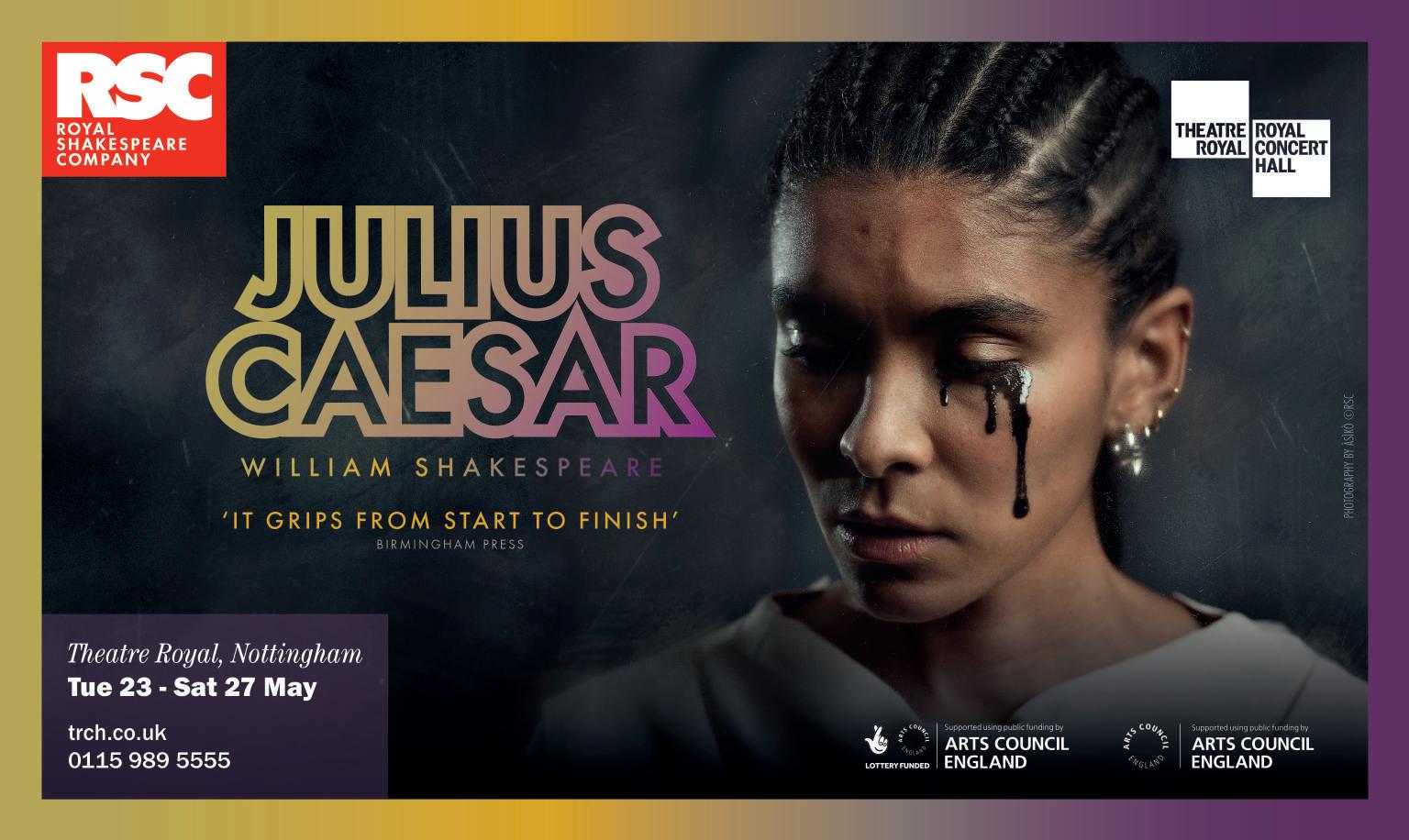

words: Cameron Black
Stage fanatic and supremely talented artist, Jim Brown was our only pick for this special issue. He talks us through his creative process…
Tell us a bit about yourself…
I'm an illustrator and designer, a lanky millennial husk mostly working in marketing and design for film in and around Nottingham. My work includes everything from concept art to doormat labels, movie props to short comics. Nowadays I have a nine-tofive design job, but in-between I still draw and work on the occasional short film.
What was the inspiration behind the cover?

I’ve been on and behind the theatre stage from when I was small. The cover drawing is of the production of Romeo and Juliet that first made me first fall in love with theatre in 2008, surrounded by the gorgeous green of the Nottingham Theatre Royal. In the audience are scattered friends and colleagues who work in theatre land in Nottingham, as well as my sister and me.
How does it compare with some other projects you’ve worked on?
I love producing drawings like this, with weird angles, big shapes, and a complete artistic licence on colour. Having worked on some completely bonkers film sets, it’s a nice opportunity to curl up in my deckchair with my drawing tablet and an audiobook.
What was the biggest challenge you faced in creating this piece?
Deciding what to draw! I’ve performed in and visited so many fantastic theatre spaces, like the Lakeside Theatre, Nottingham Arts Theatre, and Lace Market Theatre (to name a few), so it was tough to choose. In the end, I picked based on that envelope of fizzy green in the Royal!
What have you got planned for the future?
I have a BFI short film with director Sam Dawe coming out soon (check out the poster I designed on my website). I’m also working on an ongoing illustration project called the Cosmic Hedgerow, with drawings and digital art surrounding a still mythical and magical corner of the English countryside.
Is there anything else you’d like to tell the LeftLion readers?

Keep making, building, painting, and crocheting. The world is an absurd place, but with a little bit of effort from each of us, we can make it completely ridiculous.
@deadhandsjim jimbrowndesign.com
Plants and Prayers: Health and healing before 1700 is the latest display at Lakeside Arts’ Weston Gallery. Local archaeologist Cameron Black introduces the strange medieval potions and curious medical theory books now on display in this fascinating exhibition…

Modern medicine is one of the greatest achievements of our times; advancements in science and technology allow us to lead longer and healthier lives than ever before. But this wasn't always the case.
Many view the pre-modern period as an ignorant time, an age of disease and suffering, and while it is certainly true that people in the past didn’t have it easy, this is a picture that's being increasingly challenged. Even the phrase ‘The Dark Ages’ itself has been largely left behind, with many people taking a fresh look at this enigmatic period of human history.
Even still, when we think of medieval medicine, images of bloodletting, Horrible Histories, and a distinct lack of hygiene probably spring to mind. This is in no small part thanks to the many TV shows and films that depict such a world. It is this kind of idea that the exhibition hopes to illuminate.
Plants and Prayers was jointly curated by Dr Christina Lee, Dr Erin Connelly, and the University of Nottingham’s Manuscripts and Special Collections teams. It features artefacts, manuscripts and digital resources to explore various aspects of medicine, patient care and healing from pre-1700.
Among these stunning assortments of manuscripts is the illuminated Wollaton Antiphonal and the curators’ star artefact, the fifteenth-century Lylye of Medicynes Currently on loan from the Bodleian Libraries in Oxford, the text was widely used in medical schools for hundreds of years. “It is a significant object in past centuries and present applications,” Dr Connelly tells me, explaining how the text has been a foundation for much of her work, including data mining medieval recipes, and antimicrobial testing of medicinal ingredients.
“These are not people who are backward!” Dr Lee insists as she explains the complexity of medieval medicine and society. “We do find ingredients that come from Southeast Asia in medieval medical texts. Ginger, cinnamon, pepperpepper is important, and that comes from the Middle East.”
One instantly recognisable feature of the exhibition is a pair of combs from the University of Nottingham Museum. Dr Lee explains how, besides the usual association with lice and plague, they illustrate an often overlooked point: “People did look after their hair! Every time you watch a movie about the Middle Ages, it is always about the mud and shaggy hair. This is absolute bunkum! Combs are ubiquitous in graves, so people looked after their barnet.”
A main topic of the exhibition is the remedies themselves, and their effectiveness (or lack thereof). “We also hear about combs in remedies, including one of the less useful constructions for healing an elderly man who has lost his eyesight: he should be taken for a walk (or carried or put on a wagon) and should drink absinthe and comb his hair.” Although such a remedy may seem absurd today, Dr Lee is quick to explain why we shouldn't assume a
complete understanding of the language or context of these remedies. “We need to learn the language and how they communicated about illness. In a way, we may not be so far from it ourselves: we talk about bugs and superbugs, but we don't mean insects, so anyone coming in a thousand years might say, ‘Ah, they believed this about insects!’ So we need to be really careful.”
Dr Lee explains her thoughts on some examples from a text called Lacnunga [Remedies], which includes remedies for women who have experienced stillbirths. “We know today that women suffer from the silence, and have only very recently acknowledged that this is traumatic.” The text instructs acts likely symbolic in nature, such as taking soil from the grave to a crossroads. “They are things where it is, ‘I see you, and I know, so here is something you can go and do,’ to take her out of the position of something happening to her, and into an active role.”
People did look after their hair! Every time you watch a movie about the Middle Ages, it is always about the mud and shaggy hair. This is absolute bunkum
The most compelling aspect of the exhibition is its link to AncientBiotics, an interdisciplinary team interested in the remedies from historical and traditional medicine. Dr Lee and Dr Connelly were both involved in successful research into the tenth-century remedy 'Bald's Eyesalve'.
Dr Lee touches on the importance of historical accuracy in the project, explaining why they couldn't use the mass-produced, standardised vegetables on offer in a supermarket. “That’s not what medieval people had, that's very different, so we used organic vegetables. There is wine in there. It’s very difficult to get something that is like wine in the early medieval period, so we went for an organic wine from a vineyard in England, where we know there was a vineyard in the middle ages.”
After careful testing, the team produced fantastic results. They found ‘Bald’s Eyesalve’ killed up to 90% of MRSA bacteria (the antibiotic resistant superbug) in experiments, believing it to be the effect of the entire recipe rather than one single ingredient. “We thought, ‘Wow! Have we made Domestos?’”
With fascinating artefacts and thought-provoking research, Plants and Prayers offers a refreshing dive into the history of medicine, and I would encourage any reader to pay it a visit.
Plants and Prayers: Health and healing before 1700 is at Lakeside Arts’ Weston Gallery until Sunday 3 September
words: Eleanor Flowerday photos: Chronic Insanity
Theatre is a staple of our culture, a medium of entertainment that has long stood the test of time. But that doesn’t mean there isn’t room for evolution. Chronic Insanity, the Nottingham-based theatre-makers focused on accessibility and sustainability, show us how it can happen…
Run by Nottingham based theatre-makers, Nat Henderson and Joe Strickland, Chronic Insanity has been staging shows in the city for the past four years. With their twelve shows in twelve months format, the company have iteratively found solutions to reduce the environmental impact of their productions. Their lowimpact shows, Joe explains when I sit down to chat with him, “fit into a suitcase”, and embrace digital theatre-making. Sustainability is a part of their core values - built into the foundations of the company, alongside prioritising making their theatre as accessible as possible.
A number of factors can increase a show’s carbon footprint. You start off with emissions released in hiring a venue for rehearsals, and then with the transport for cast and crew. Costumes and props may be hired but sets will often be built for each production - that’s more resources used and a bigger impact. Sound and lighting increases it still, with traditional stage bulbs using around 575 watts of energy. When performances start, there are the emissions created in running a venuelighting, water, heating, and use of single-use plastics. You’ve then got to transport your cast and crew to the joint, and finally the audience themselves.
While the COVID-19 pandemic saw a rise in hybrid and digital theatre-making, which cuts out many of these emission causing factors, many theatre-makers saw it, as Joe says, as a plaster on a wound - and creatives quickly returned to normal practices as soon as auditoriums could once again be filled. Chronic Insanity does things a little bit differently.
Their shows often take a minimalist approach, and embrace the atmospheres of their venues to spur on the storytelling. Joe cites their production Politer Guests as one such example, performed in the National Justice Museum’s basement in October 2019. Why waste resources on building a haunting set when you could simply set up production in a haunted prison?
In a similar vein, Nottingham’s theatre goers will soon be able to experience The Void, an immersive theatre venue in the city’s caves. The Void promises more atmospheric theatre without the need to build bespoke sets. Caves also maintain temperature incredibly well, so there’s no need to use energy in heating or cooling. All the equipment will have to run on batteries, allowing them to charge via renewable energy sources to keep emissions to zero.
Chronic Insanity have found their minimalist live performances and lo-fi digital productions to be particularly successful. Pared back performances have a significantly smaller carbon footprint - with fewer resources used for set-building,



costumes, lighting, and sound (although live onstage music is often used). But there’s also a special kind of magic with this sort of theatre. It harkens to old ways of storytelling, gathered round the fire and relying on human connection and imagination to make the shows come alive without the distraction of snazzy sets. It all goes hand-in-hand. A minimalist or digital performance will have a smaller carbon footprint than a high-production live performance. With Chronic Insanity’s “little yet often” approach, shows are cheaper to produce and therefore more economical, allowing for better pay for cast and crew and more affordable tickets. Their shows can therefore be accessed by broader audiences, including audience members with additional access requirements. A more lo-fi digital performance will have an even smaller impact, and be accessible to audiences with limited digital literacy or access. Everyone is included, and the environment is better off for it.
“These are moral objectives to consider,” Joe explains.
Organisations like Julie’s Bicycle and, up until 2022, Staging Change, have helped along the cause sustainability on stage, and Chronic Insanity are certainly a changemaking company, but as their upcoming show with CAST, New Leaf, explores, who actually holds the responsibility to instigate change? Arts Council England’s funding policies state that environmental sustainability is a significant factor in securing funding, but a cultural change in theatres mainstream still needs to happen, and the way funding is considered can be a big kick. Joe feels that carbon offsetting isn’t enough - reductions in productions’ initial impact must be prioritised.
The theatre industry is at an exciting point - with the opportunity to produce greener shows that make a difference, and that can be enjoyed by everybody. With companies like Chronic Insanity showing what’s possible, it would be mad not to.
With Chronic Insanity’s “little yet often” approach, shows are cheaper to produce, and therefore more economically sustainable
Greetings, May, and your abundance of bank holidays! How delightful are these lighter evenings?
I did a crystal healing last week and, during the session, I explained how important it is to check in with yourself. It was a new concept to my client. They asked me, "How?"

Set aside some quiet time and get comfortable. You can have your journal with you, if you like to keep track. Ask yourself, 'How am I feeling?' You can break it down for your physical, emotional, and mental bodies. Being honest with yourself is a must, otherwise it's a pointless exercise.
words: Lizzy O’Riordan photo: Tim Nguyan
Part of an ongoing project with Ramps on the Moon, Nottingham Playhouse hired theatre designer and maker Nikki Charlesworth as an Agent for Change - a position designed to increase inclusivity and accessibility for disabled people in the stage industry. We chat to her about what it means to be a disability-led theatre…

Like most areas of employment, theatre hasn’t always been kind to the disabled community. Whether through a lack of support workers, poor access to facilities, or the use of tired old tropes, it’s traditionally been difficult for disabled folk to break into the stage world. And, while 19% of the population nationally identify as disabled, only 4% of the arts industry classify themselves as such.
in local exhibitions centred around disability, notably found in Carolyn Lazard’s recent installation Long Take at the Nottingham Contemporary - a completely dark showcase which puts the viewer in the position of a blind or partiallysighted person. “I think a lot has happened in popular culture that has made people interested in creative work that is inclusive and representative,” Nikki says, “which is really positive.”
Monitor your reaction. It can become quite overwhelming when you give yourself space to acknowledge your wellbeing. And this can be a huge indication as to where you may need to rejig responsibilities that are becoming a burden, or deal with a situation that is causing stress. Remember to breathe deeply if you do feel discomfort, and always have a tissue handy. Crying is an acknowledgement of pain and a release of energy.
If you do find you're having trouble in certain areas, ask yourself, 'What do I need?' Sometimes the solution may seem unachievable in the present moment, but it can help you set goals for the future, which can help to relieve anxiety.
It is also a great opportunity to remind yourself of your blessings and the things in life that bring joy and come with ease. Use the time to scan your body too (go back a few issues if you missed how). Your body is a fantastically capable machine that needs to be looked after, if you want to get the best out of it.
So, for this month’s affirmation: I am aware of my needs.
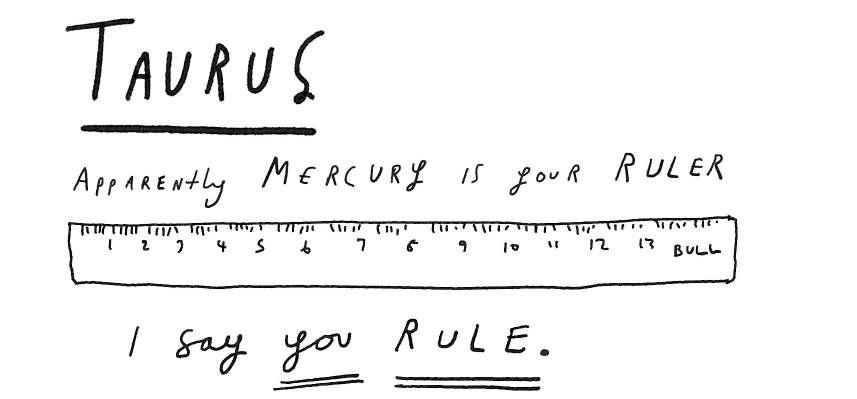
Until next time, my loves. Be safe, no fear and stay blessed.
Yet the tides are starting to change, and theatres are making active strides to improve their accessibility, largely through the concept of becoming ‘disability-led’. A term that’s gained a lot of traction in the past few years, the official definition given by Arts Council England states disability must be represented in a company's entire structure - a sentiment mirrored by Nottingham’s Nikki Charlesworth, the current Agent for Change at the Nottingham Playhouse. “For me, disability-led means that the concept and the creative direction is entirely led by a disabled person,” she explains, “but also that we’re considering disabled identity and disabled history as a part of that.”
Jumping on Zoom, we chat more about Nikki’s role, which is funded by Ramps on the Moon - an organisation created to normalise the presence of deaf and disabled people on stage. A position that she started just over a year ago, Nikki explains that it’s a mixed role. She advises on access and inclusion across all departments, and her day to day tasks vary greatly. “For example, I’ve set up an access working group for customers, collaborators and freelancers who identify as disabled, where they can talk about where The Playhouse is doing well and where it can improve,” she tells me, “so that’s very practical. But I've also done some creative things like creating BSL (British Sign Language) lessons for employees of The Playhouse and making a BSL brochure for upcoming shows.”
Part of an ongoing trend in disability inclusion, Nottingham Playhouse aren’t the only Nottingham group aiming to improve their accessibility. In fact, we recently saw City Arts provide a residency for deaf, disabled or neurodivergent artists, through which they offered £1,200 to a creative person fitting this description. Plus, we’re also seeing a rise
Yet there are, of course, still many barriers to disabled people and the arts. When it comes to disability, Nikki points out that venues need a lot more groundwork and infrastructure changes. Then, in addition to the building itself, a massive barrier occurs in the expected deadlines of creative projects. “Especially in theatre, often things can move with such a tight turnaround that it becomes a barrier,” she explains. Plus, in an industry that is so heavily reliant on networking, there is often an access barrier to disabled people attending social events. As Nikki says, “Often it’s harder for disabled people to get their names out there, because they may need an access worker at these social events and this would count as a personal expense. As you can imagine, it has a big knockon effect.”
So, while we’re heading in the right direction, there’s still plenty of work to be done. How? “By continuing to advocate and facilitate space for conversation,” Nikki explains, “and swallowing your own pride when you don’t know something, and instead just being ready to ask and to listen.”
You can learn more about Nikki’s access work on her website nikkicharlesworth.com
@lovecelestene lovecelestene.com

While 19% of the population nationally identify as disabled, only 4% of the arts industry classify themselves as such
If you're having trouble in certain areas, ask yourself, 'What do I need?'
words: George White photo: Topstar Portraits
They sold countless records. They were worshipped across the planet. They changed the state of music forever. But would The Beatles have achieved it all without Nottingham? Well, probably - but we’d like to think we played some

You may have heard of The Beatles. You know, one of the most influential bands of all time - or the most influential, if the frequent, passionate rants of our former Editor, Ashley Carter, are to be believed. The creators of beloved bangers like Yesterday, Let It Be and Come Together. The group of four Liverpudlians who created an entire genre of music and made their mark on pretty much every other genre thereafter. Yeah, those Beatles.
Yet what you may not know is that Nottingham, as is the case with so many of our country’s finest musical acts, played an important role in the rise of the planetdominating performers, and the explosion of Beatlemania that followed. You see, a full six decades ago, in 1963 - a year that also saw the assassination of John F. Kennedy and the launch of Doctor Who - The Beatles rocked up in Nottingham, but to relatively little fanfare.
A full six decades ago, in 1963 - a year that also saw the assassination of John F. Kennedy and the launch of Doctor Who - The Beatles rocked up to Nottingham, and to relatively little fanfare

It was the eve of Thursday 7 March, and the band were booked in at the Elizabethan Ballroom on Upper Parliament Street. It was their first visit to the city, and preceded the release of their debut studio album, Please Please Me, by just a few weeks. Rock ‘n’ roll had yet to properly stretch past the River Mersey, and talk of the Fab Four was nowhere to be heard.
Playing as part of a Mersey Beat Showcase, The Beatles were joined by the likes of Gerry and the Pacemakers, the Big Three, and Billy J. Kramer, offering a nightlong introduction to the fresh flair of scouse sound. While a decent local crowd were expected to turn up, tickets were hardly flying off the shelves, and record label NEMS Enterprises decided to book two coachloads of Liverpudlians to fill the modest venue - bringing eighty fans down from Merseyside for the mighty price of £1.50 in today’s money, according to Mersey Beat
A mere fifteen days later, though, everyone across the country was checking out the gang for themselves. The release of Please Please Me was an overwhelming success, topping the UK album chart in May 1963 and remaining there for thirty weeks - until it was eventually replaced by, um, The Beatles, with their second album, With the Beatles
Only two months after their relatively quiet debut in Nottingham, on Thursday 23 May, the band were back in our city - this time taking over the Odeon to a slightly busier, and louder, reception. “It was a great occasion,” muses Helen Stirland, who was there on the night. “It was really difficult to get to the show. For their first gig in March, promoters were almost giving tickets away as there weren't enough people interested. But I had to spend quite a bit of money to get a ticket this time, and they weren’t easy to get your hands on. I was still in school at the time, and I don’t think my parents were too happy about the fact I was going to this rock ‘n’ roll concert…
“I feel incredibly lucky that I got the chance to see them, though. You could tell during the night that they were a special band with a big future ahead of them. I’ve listened to them ever since; I don’t think I’ll ever get bored of them. I even joined the Beatles Fan Club after that - it’s the only fan club I’ve been a part of!”
Playing a seven-song setlist that included timeless classics like Do You Want to Know a Secret and Twist and Shout, the rising stars performed not as part of a large line-up, but alongside The Big O, Roy Orbison, as part of his run of UK gigs. While the latter initially bagged top billing for the tour, the popularity of The Beatles meant they soon became co-headliners, and by the time they reached Nottingham, there were arguably more fans there for the floppy-haired foursome. Poor Roy.
“I definitely think most of the girls were there for The Beatles,” Helen laughs. “Roy Orbison and The Beatles were so different that you couldn’t really compare them, but they were definitely as much the headliners as Roy was. I remember leaving the concert out of the side door and there were loads of girls outside screaming, and the band were a couple of floors up shouting over to them. It’s safe to say they were already building up quite the following!”
However, it was on their third - yes, third - visit to Notts that year that the true grip of Beatlemania took hold. As David Whitfield recalls, when the band hit up Odeon once more on Thursday 12 December, this time as outright headliners, the entire city went into meltdown, with the group receiving “a tumultuous reception from thousands of ecstatic young fans. All police leave in the city was cancelled and a fleet of ambulances were put on standby.”
The Beatles would return to Odeon one more time, in 1964, rattling off classics like Can't Buy Me Love and A Hard Day's Night before bringing their association with Notts to a close
One of the super supporters that night was Audrey Pridmore, who writes about experiencing the chaos of Beatlemania for the Loughborough History and Heritage Network: “In the early 1960s I was a very young teenager and a huge fan of The Beatles. It seemed to be the trend that you were into either The Beatles or The Rolling Stones, but didn’t generally admit to liking both,” she muses. “Aside from the music, I think a lot
depended on which member of the group you happened to fancy, so that played a big part in which one you followed. Paul was my favourite, with George a close second.
“I saw The Beatles when they appeared live on stage at the Nottingham Odeon Cinema, after applying by post for tickets. As I remember, it was just pot luck as to whether you were successful or not, but on this occasion my best friend was the lucky one so I got to go along too,” she continues. “However, the tickets were on the back row and although we could just about see the stage, it was impossible to hear anything because of the constant screaming. No matter, the fact that we could lay claim to ‘being there’ was enough and I can still picture the famous four in their grey collarless suits in my mind’s eye today.”
The Beatles would return to Odeon one more time, on Thursday 5 November 1964 (they seemed to love their Thursdays), rattling off classics like Can't Buy Me Love and A Hard Day's Night across two separate shows before bringing their association with Notts to a close. Yet, while their focus may have shifted
We’ve teamed up with the National Justice Museum to put objects from the past into the hands of people in the present.


This month, we took a chair (well, a photo of a chair, at least) that was used in a prisoners’ production of Sweeney Todd to the Theatre Royal’s Venue Director, Peter Ireson
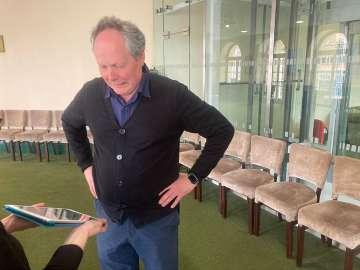
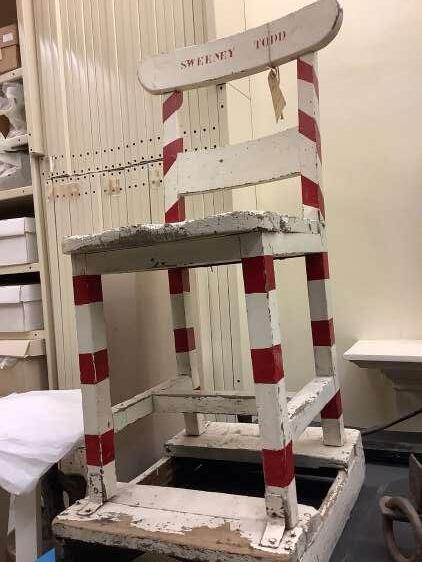
towards bigger cities like London and Los Angeles following their time in the East Midlands, the impact of our own city on the band - and of the band on our city - is unmistakable.
From taking a punt on a relatively unknown group in a relatively unknown genre, to supporting their meteoric ascent to global stardom, Nottingham provided a platform for these boundarypushing artists when few venues south of Mathew Street would do so. And, while limited gigs meant few people living in Notts actually got to see them in Notts, their impact on those who were lucky enough to catch them here is still felt today - not least by Douglas Colton Lee, commis chef at the Swan Hotel in the early 1960s, who tells Mersey Beat, “My girlfriend at the time loved the Beatles. I had been given a complete set of autographs, personally, the last time they stayed at the Swan. I gave my girlfriend the autographs. I didn't really think about it again until this year when I discovered how much they would be worth today. I was mortified.” That’s the price of generosity, Doug.
1. Well, there's a bit of a clue there, with the name “Sweeney Todd”. It’s also red and whitewhich are typical barber colours. I'm assuming there's never been a judicial penalty of turning people into pies?
2. It could be from some sort of adaptation of Sweeney Todd. There’s a bit of humour going into what is otherwise a fairly basic chair, through those colours.
3. Did the prisoners put on an amateur dramatic musical? Possibly a production of Sweeney Todd? I guess that’s quite ironic, in a way. I imagine they weren't allowed cutthroat razors…
4. It’s fantastic that prisoners had the chance to do something like this. We’re obviously big advocates of the idea that theatre is good for your mental healthso getting the opportunity to make the most of that, while you’re otherwise locked away for hours every day, is a great thing.

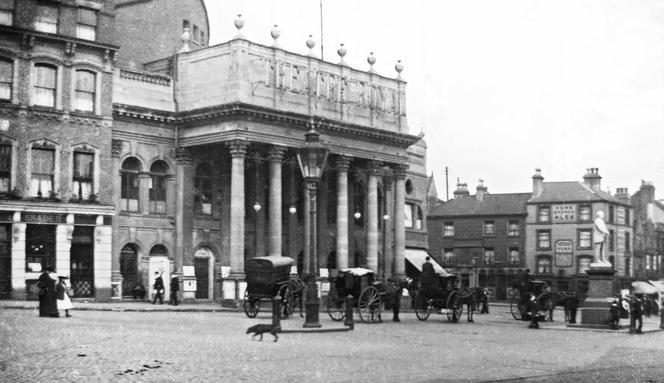
photos: Theatre Royal and Mortan (@mortanfw)

MONDAY 1 MAY
�� Rebirth of Cool
The Bodega Free
�� The Big Quiz
Malt Cross
£1, 7.30pm
�� Horn in Hand Quiz
The Horn in Hand
£0.50, 7.30pm
TUESDAY 2 MAY
�� Romeo and Juliet Lakeside Arts
£15, 7.30pm
�� Bodega Quiz
The Bodega
£10, 7.30pm
�� 12.30 Talks
Nottingham Contemporary Free, 12.30pm
�� Exploring Heritage at Inspire Libraries Various Inspire Libraries Free, 10am
�� Elderbrook Rescue Rooms
£12, 6.30pm
WEDNESDAY 3 MAY
�� Riot Ensemble at university Hall University Hall
£5, 7pm
�� Romeo and Juliet Lakeside Arts
£15
�� James Heather: Metronome Piano Sessions Metronome
£13.50, 7pm
�� Poetry from Helen Jukes, with Helena Hunter, Annie Cross and Rachel Bower Five Leaves Bookshop
£4, 7pm
�� The Dream Machine
The Bodega £10, 7pm
THURSDAY 4 MAY
�� Romeo and Juliet Lakeside Arts £15, 7.30pm
�� Tracey/Galea Legacy Quintet Bonington Theatre £5, 7.30pm
�� Gwenifer Raymond Metronome £13.50, 7pm
�� In-conversation: Emily Andersen and Ruth Fainlight Bonington Gallery Free, 6.30pm
�� Jennifer Saint and Sarah Underwood in Conversation Waterstones £5, 6.30pm
FRIDAY 5 MAY
�� Romeo and Juliet Lakeside Arts £15, 7.30pm
�� Coming of Age: Poetry Workshop Nonsuch Studios £7, 4.30pm
�� Dirty Corset Nottingham Playhouse £12, 8.30pm
�� Liza Pulman and Joe Stilgoe – A Couple of Swells! Nottingham Playhouse £26, 7.30pm
SATURDAY 6 MAY
�� Romeo and Juliet Lakeside Arts
£15
�� Playing With Paint! MinorOak £28, 10am
�� The Harlem Globetrotters Motorpoint Arena Nottingham £25, 7pm
�� Paper Crane Poets Workshop The National Justice Museum 11am
SUNDAY 7 MAY
�� The Annual Boat Party
The Nottingham Princess £10, 3pm
�� Workshop: Creating with Crip Time by resting up collective Nottingham Contemporary Free, 1pm

�� Magic Castles // The People Assembly // Bloody/bath
The Chameleon £7, 8pm
�� dean stockdale quartet –celebrating oscar peterson Peggy’s Skylight £10, 12pm
�� DAFT FUNK + FATBOY TIM Rescue Rooms £15, 7.30pm
MONDAY 8 MAY
�� Rebirth of Cool The Bodega Free
�� The Big Quiz Malt Cross £1, 7.30pm
�� Horn in Hand Quiz The Horn in Hand £0.50, 7.30pm
�� Jonny Craig The Bodega £16, 7pm
TUESDAY 9 MAY
�� Manchester Collective and Sean Shibe
Djanogly Recital Hall £20, 7.30pm
�� The Wizards of Oz: Examining Australian Cinema Broadway Cinema £70, 7pm
�� Poetry, with Lucy Mercer and Nell Osborne
Five Leaves Bookshop £4, 7pm
�� The Nature Of Forgetting
Nottingham Playhouse £18.50, 7.30pm
WEDNESDAY 10 MAY
�� Talk: Medicine on the Move Lakeside Arts
£3, 1pm
�� Messy Drink and Draw
The Carousel £3, 7pm
�� Ghost Woman Metronome £10, 7pm
�� Daoiri Farrell - Authentic Irish Folk Musician
Djanogly Theatre
£16, 7.30pm
�� Old Hollywood: The Good, The Bad and The Beautiful Broadway Cinema £70, 7pm
�� The Last Resort: Coastal Life in British Cinema Broadway Cinema £56, 2pm
THURSDAY 11 MAY
�� Films at Inspire Libraries Various Inspire Libraries Free, 6.30pm
�� Henry Normal: Collected Poems and Other Landfill Djanogly Theatre £15, 7.30pm
�� Cathy Bramley Book Launch Waterstones £5, 6.30pm
�� Sad Boys Club The Bodega £10, 7pm
�� sharp little bones Peggy’s Skylight £8 - £12, 7pm
FRIDAY 12 MAY
�� Mark Jenkins presents Mike Oldfield’s Tubular Bells Malt Cross Free, 7.30pm
�� Henry Normal: Collected Poems and Other Landfill Djanogly Theatre £15, 7.30pm
FRIDAY 12 MAY
�� Shooting Jesus: Silver Screen Saviours Broadway Cinema £53, 7pm
�� CANDY Nottingham Playhouse £13, 7.30pm
�� The Anchoress Rescue Rooms £18.50, 6.30pm
SATURDAY 13 MAY
�� Make your own Summer hanging basket STAA on St Ann’s Allotments £35, 10am - 12pm
�� Mista Trick Collective The Bodega £15, 7pm
�� Eurovision - Grand Final Live rated Savoy Cinema £11, 7.30pm
�� The Ultimate Eurovision Watch Party Nottingham Playhouse £15, 8pm
�� Pretenders Rescue Rooms £35, 6.30pm
SUNDAY 14 MAY
�� Watson Fothergill Walk Meet outside Tourism Centre £15 - £16.86, 10am - 12pm
�� Daily Life in Viking Nottingham Lakeside Arts £2
�� Ichiko Aoba The Bodega £15, 7pm
�� BC Camplight - Live & Signing Rough Trade £12.50, 6pm
�� Paul Young – Behind The Lens Nottingham Playhouse £32 - £82, 7.30pm
MONDAY 15 MAY
�� Rebirth of Cool
The Bodega Free
�� The Big Quiz Malt Cross £1, 7.30pm
�� Horn in Hand Quiz
The Horn in Hand
£0.50, 7.30pm
�� Film School Broadway Cinema £130, 6.30pm
�� Vacations
The Bodega £12, 7pm
TUESDAY 16 MAY
�� Terrarium Workshop Cobden Chambers £50, 6pm
�� Jazz Steps Live at the Libraries Presents: The Chris Ingham Trio Worksop Library £12, 7.30pm
�� Death Goals + support
The Chameleon £8, 6pm
�� And Then There Were none The Studio Theatre £6.50, 7.30pm
WEDNESDAY 17 MAY
�� Being a feminist killjoy, with Sara Ahmed Antenna Free, 7pm
�� Smash Night! An Improvised Comedy Experience
The Playwright 38 £3, 7.30pm
�� An Evening with Caleb Azumah Nelson Waterstones £5, 6.30pm
�� Mama Nottingham Playhouse £16.50, 7.30pm
THURSDAY 18 MAY
�� WRAP Café Nottingham Contemporary Free, 6pm

�� Plants & Prayer Gallery Tours Lakeside Arts Free, 11am
�� The Polar Bear (Is Dead) Nonsuch Studios £15 - £15, 7.30pm - 9.30pm
�� Best of Enemies Broadway Cinema £16, 7pm
�� Changing the World, One Book at a Time, a short history of radical bookselling Five Leaves Bookshop £3, 6.30pm
FRIDAY 19 MAY
�� The Chase Metronome £10 - £10, 7pm - 11pm
�� Smash Hits Bistro Live £20 - £27.95
�� Prima Queen The Bodega £10, 7pm
SATURDAY 20 MAY
�� NTU Music’s Summer Celebration University Hall £5, 3pm
�� Watson Fothergill Walk: The Carrington Crawl Meet outside St Andrew’s Church £15, 1pm
�� Sav Aküyz West Bridgford Library Free, 10.30am
�� Ministry of Science Live Nottingham Playhouse £16.50
�� Hang Massive Rescue Rooms £24, 7pm
SUNDAY 21 MAY
�� Don Giovanni Broadway Cinema £18, 12pm
�� Dea Matrona The Bodega £10, 7pm
�� Martin Luke Brown (Unplugged+Signing) Rough Trade £15.50, 5pm
�� rob rosa quartet [sunday afternoon jazz] Peggy’s Skylight £10, 12pm
MONDAY 22 MAY
�� Rebirth of Cool The Bodega Free
�� The Big Quiz Malt Cross £1, 7.30pm
�� Horn in Hand Quiz The Horn in Hand £0.50, 7.30pm
�� Billie Marten Rescue Rooms £15, 7.30pm
�� Se7en Savoy Cinema 8.30pm - 11pm
TUESDAY 23 MAY
�� WRAP Live! Safia Khan x WRAP Metronome Free, 7pm
�� Frances Brody Sutton-in-Ashfield Library £2, 2pm
�� Unknown Realms Djanogly Theatre
£16, 7.30pm
�� Calva Louise The Bodega £10, 7pm
WEDNESDAY 24 MAY
�� Scott Matthews Metronome
£18, 7pm
�� Poetry from Alan Jenkins, with Adrian Buckner and Tuesday Shannon Five Leaves Bookshop
£3.99, 7pm
�� Brush Painting Lakeside Arts
£7.50, 6pm
�� Tim Gallagher Rescue Rooms
£14, 6.30pm
THURSDAY 25 MAY
�� YESYESNONO presents we were promised honey! Nonsuch Studios £12, 7.30pm
�� Five Leaves Book Group discusses Ocean Vuong’s On Earth
We’re Briefly Gorgeous Five Leaves Bookshop Free, 7pm
�� Still Life Workshop Djanogly Art Gallery £20, 10am
�� The Grand Egyptian Museum Djanogly Theatre Free, 1pm
FRIDAY 26 MAY
�� Skeggs Metronome £13, 7pm
�� The Devil Makes Three The Bodega £23.50, 7pm
�� The Blue Badge Bunch Nottingham Playhouse £12, 2pm
�� She Will Allow Her Wings: Jane Bluett pamphlet launch Five Leaves Bookshop Free, 7pm
SATURDAY 27 MAY
�� Abi Moore - Album Launch The Angel Microbrewery & The Chapel £10, 7.30pm
�� Time To Shine Promotions presents... CANDID + MIMOSA + 2079
Rough Trade £10, 7pm
�� fraser smith quartet [jazz] Peggy’s Skylight £11
�� World Jam’s Musical, Multilingual Poetry Open Mic Extravaganza Five Leaves Bookshop Free, 6.30pm
SUNDAY 28 MAY
�� Dot to Dot Festival Multiple Venues £30
MONDAY 29 MAY
�� GUVNA B: Live & Signing Rough Trade £13.50, 6pm
�� EMAROSA Rescue Rooms £17, 7.30pm
TUESDAY 30 MAY
�� Lady Nade: Metronome Folk Sessions Metronome £8, 7pm - 11pm
�� Anna B Savage The Bodega £13, 7pm
�� Sir Chloe Rescue Rooms £14, 6pm
WEDNESDAY 31 MAY
�� Breakin’ Convention Theatre Royal and Royal Concert Hall £7.50
In Conversation: Emily Andersen and Ruth Fainlight

When: Thursday 4 May, 6.30pm
Where: Bonington Gallery, Nottingham Trent University
How much: Free
Somewhere Else Entirely is internationally-acclaimed photographer Emily Andersen’s first completed video portrait, presenting an intimate insight into the life of poet, and decadelong friend, Ruth Fainlight. Join the pair for an exclusive inconversation event reminiscing about their friendship, the creative process behind the exhibition, as well as the chance to enjoy a special reading by Ruth.
Just the Tonic Comedy Club –Mark Simmons: Quip Off the Mark
When: Friday 5 May, 6.45pm
Where: Metronome
How much: £16 + booking fee
“Master of one-liners” Mark Simmons is bringing his highlyanticipated debut show, Quip Off the Mark, to Nottingham’s Metronome. As seen on BBC2’s Mock The Week, Simmons will be touring the UK to deliver a production full of cleverly-crafted jokes and on-the-spot gags. Uniquely structured in a way you’ve never seen before, go and discover what’s in the box that Simmons recently collected from his childhood home…

Castle Rock’s Yard Party 2023
When: Friday 12 – Saturday 13 May
Where: Castle Rock Brewery
How much: £12.10-16.50
Fancy a pint? Castle Rock
Brewery’s annual two-day beer, music, and food festival is back for 2023. Join them in the brewery yard for a fun weekend full of live music, including Nottinghambased bands Chai & Ben and The Score, as well as a free brewery tour, great-tasting food and, most importantly, the best beer you’ve ever tasted! Tickets are available now and selling out quickly.

When: Thursday 18 May, 7pm
Where: The Arc Cinema, Hucknall

How much: £17.95
James Graham’s award-winning play captivatingly recounts a historical debate that shifted the course of American politics and transformed television news forever. Filmed live in London’s West End, and starring David Harewood (Homeland) and Zachary Quinto (Star Trek), watch an exclusive screening at The Arc Cinema, Hucknall, as the political rivals go head-to-head.
New Art Exchange Open 2023

When: From Saturday 20 May
Where: New Art Exchange
How much: Free
For the art enthusiasts among us, take a trip down to the New Art Exchange’s annual exhibition and immerse yourself in an eclectic and compelling collection of artworks. The show celebrates the talents of selected Nottinghamshire-based and Global Ethnic Majority artists presented in the NAE Open. Join them for an evening to remember on Saturday 20 May, with an incredible array of artistic flair, music, and drinks.
Rhythm & Beats: SUNDAY SES51ONS

When: Sunday 21 May, 1pm
Where: The Bandstand at Blinks Yard, The Island Quarter
How much: £5
Base 51 are showcasing the local talent of young performers once again this month. Taking place over a single day, this familyfriendly festival has a great mix of live music and dance acts, as well as food and drink stalls for everyone to enjoy. All funds raised from the event will go towards Base 51’s work helping young people across the citygrab a ticket now to show your support.
Royal Shakespeare Company: Julius Caesar

When: Tuesday 23 – Saturday 27 May
Where: Theatre Royal
How much: £12.50-£35.50
Atri Banerjee’s fresh interpretation of Shakespeare’s timeless story confronts today’s political world through a brutal tale of ambition, rebellion, and control. This powerful play follows Julius Caesar, the divisive leader of Ancient Rome, and the conspirators who murder him. As chaos unfolds and civil war erupts, this historic tragedy from over two thousand years ago raises the question of just how far each of us will go for our political principles. Head over to the Theatre Royal to experience this brilliant production in person.
Nottingham Poetry Festival

When: Friday 26 – Monday 29 May
Where: Various
How much: Various
Nottingham Poetry Festival is back this month to celebrate the art of poetry and the spoken word over four remarkable days. Join local and national literary talents as they come together to illuminate an extensive mix of events, including poetry masterclasses, workshops, local showcases, music performances, VR experiences and, as always, some astounding headline acts. Promising to be the biggest and busiest yet, make sure to save the date.

